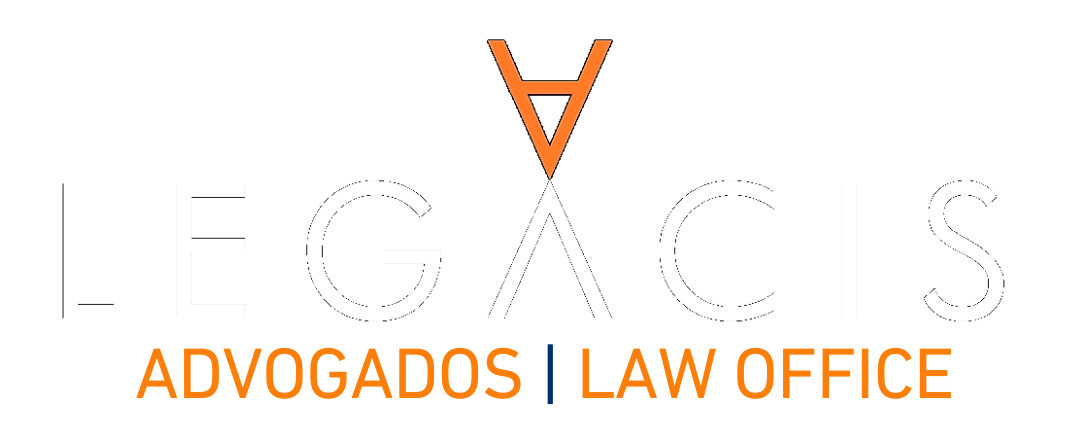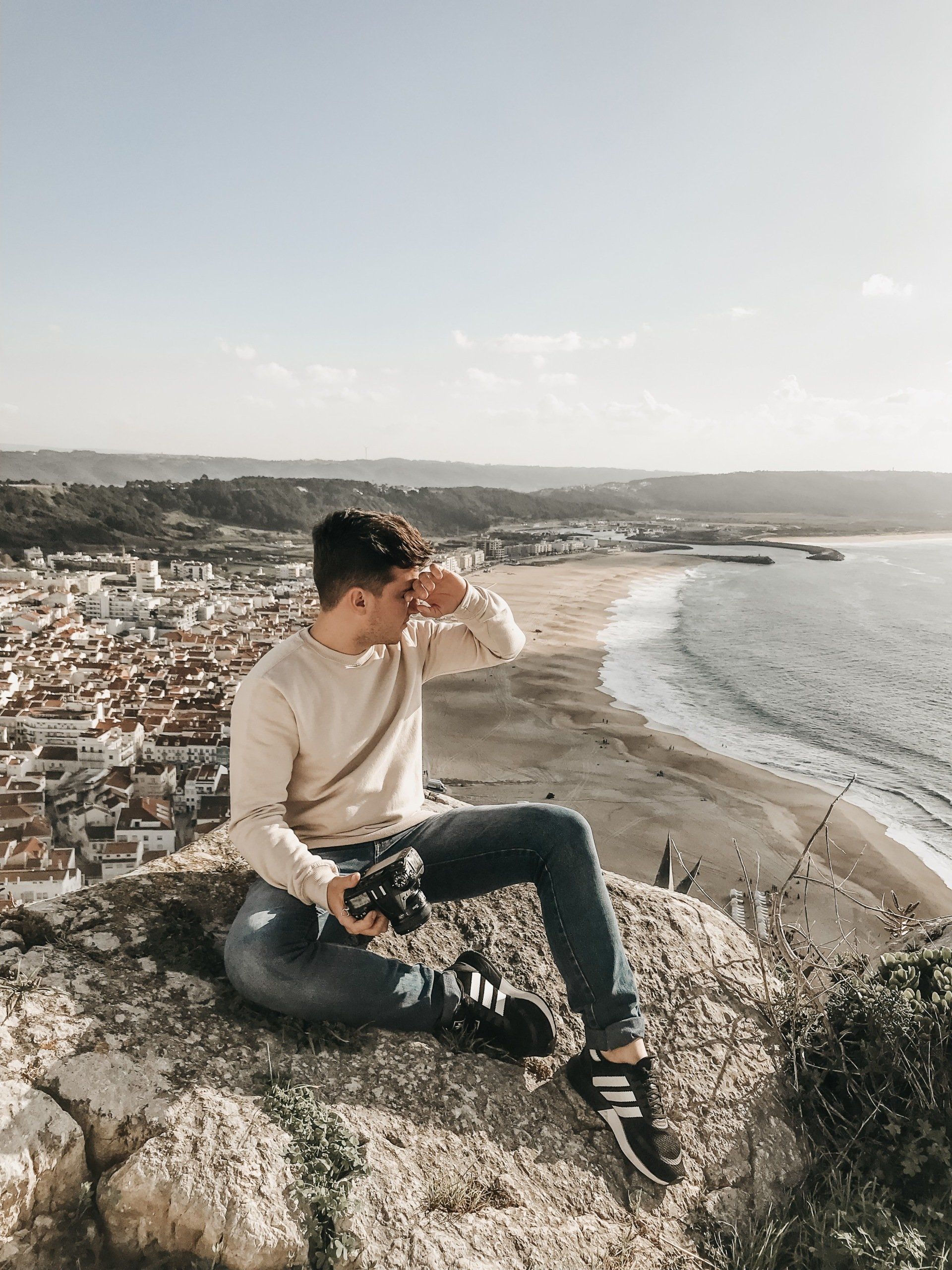LEGACIS NEWS | REPÚBLICA DO NÍGER
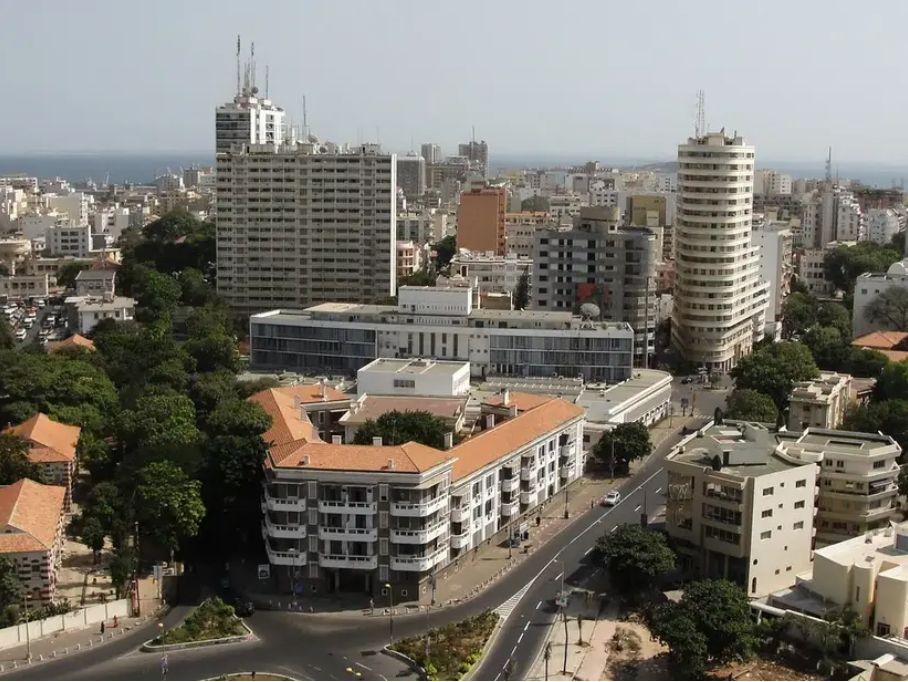
A recente publicação pela Comissão Económica para África de um relatório detalhado sobre a evolução económica e social no continente africano revela previsões optimistas para o ano de 2024. De acordo com este estudo, África deverá destacar-se ao colocar cinco das suas nações entre as economias que mais crescem globalmente. Entre estes países destacam-se particularmente o Níger , o Senegal , a Costa do Marfim , a RDC e o Ruanda , surgindo como os principais vectores desta notável expansão económica. A dinâmica de crescimento do Níger e do Senegal é em grande parte atribuída a um aumento notável no sector dos hidrocarbonetos, com um aumento significativo na produção e nas exportações. Para o Níger , este crescimento é também apoiado pela retoma da atividade agrícola e por um salto na produção de petróleo bruto, benéfico para o sector dos transportes. No entanto, deve notar-se que a economia nigerina continua sensível aos riscos climáticos e às repercussões das recentes convulsões políticas. Além disso, o Senegal está a beneficiar de um verdadeiro impulso graças ao aumento de projetos privados e de infra-estruturas. No entanto, o ambiente político continua a ser um factor a acompanhar de perto, especialmente com as eleições a decorrer em vários países africanos, o que poderá influenciar a estabilidade e o desenvolvimento económico a curto prazo. Adam Elhiraika, da CEA, destaca também a vitalidade económica da Costa do Marfim , da RDC e do Ruanda , impulsionada principalmente pelos investimentos em infra-estruturas, pelo desenvolvimento sustentado do turismo, por uma indústria mineira de sucesso e pelos frutos da diversificação económica. A RDC , em particular, deverá beneficiar da exploração de novos depósitos de petróleo e de um sector agrícola dinâmico, parte de uma estratégia nacional orientada para o aumento das despesas sociais e de investimento. Quanto ao Ruanda , o seu desenvolvimento é estimulado pelo consumo privado e pelo investimento, enquanto a Costa do Marfim beneficia de um aumento do investimento, favorecido pelas reformas do mercado e pela melhoria do ambiente de negócios. Esta dinâmica é apoiada por um consumo privado robusto, em parte graças à inflação controlada. No entanto, o relatório sublinha que, apesar destas perspectivas encorajadoras, o crescimento africano continua frágil e abaixo do seu pleno potencial. Para alcançar os Objetivos de Desenvolvimento Sustentável e as ambições da Agenda 2063, são necessários ajustamentos significativos em termos de políticas fiscais e monetárias, bem como um compromisso renovado para resolver os desequilíbrios internos e externos, a inflação e os problemas relacionados com a dívida.
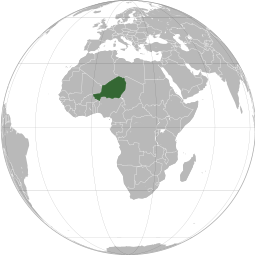
Le Niger, qui a une population estimée à plus de 26 millions d'habitants cette année, détient un taux d'accroissement démographique de 3,9%, l'un des plus élevés au monde aux côtés d'un faible taux de prévalence contraceptive moderne, a déclaré mardi Idi Illiassou Mainassara, ministre nigérien de la Santé
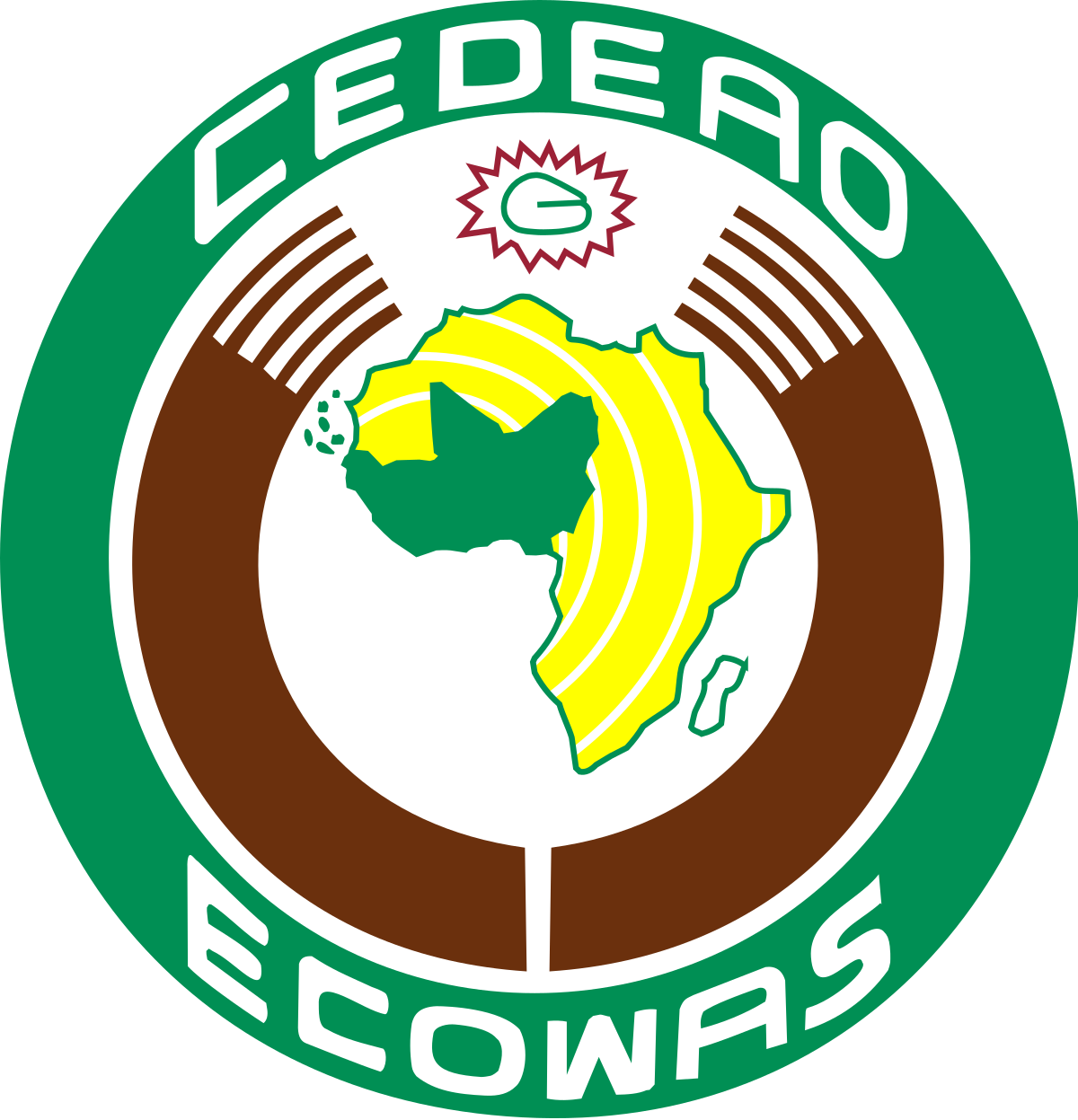
Les travaux de la 63ème Session ordinaire de la Conférence des Chefs d'État et de Gouvernement de la CEDEAO (Communauté Économique des États de d'Afrique de l'Ouest) se sont ouverts le dimanche 09 juillet 2023 à Bissau (Guinée Bissau) en présence de la quasi totalité des chefs d'État de l'organisation d'intégration régionale, dont le Président Mohamed Bazoum. La Conférence a, à son ordre du jour, la situation politique dans les trois pays membres où les processus démocratiques ont été interrompus : Mali, Guinée et Burkina Faso. Elle a à son agenda, en plus de l'examen du Rapport intérimaire 2023 du Président de la Commission sur l'état de la Communauté, l''examen du rapport de la 50ème Session du Conseil de Médiation et de Sécurité. D'autres sujets tels les obstacles à la libre circulation des biens le long du Corridor Abidjan-Lagos et le programme de la monnaie unique de la CEDEAO sont au menu des échanges. La CEDEAO regroupe 15 pays ouest africains avec pour ambition d'assurer l'intégration régionale. Source: http://www.anp.ne/article/63eme-conference-de-la-cedeao-le-president-bazoum-y-prend-part
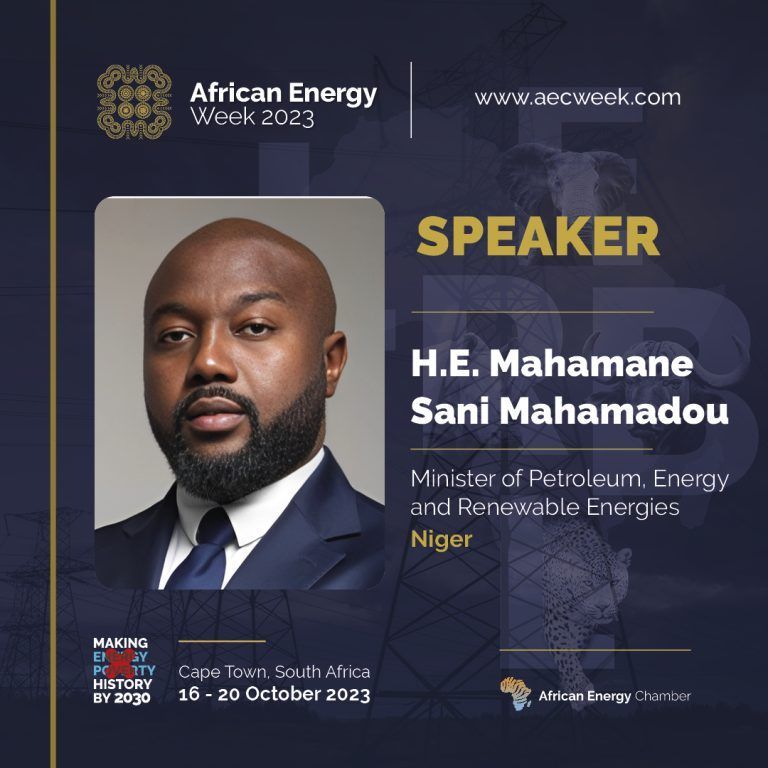
At African Energy Week, Niger’s Minister of Petroleum, Energy and Renewable Energies H.E. Mahamane Sani Mahamadou will showcase the country’s oil and gas potential while building partnerships and attracting new investments into the promising market. Niger is working towards consolidating its position as a major producing market, and is therefore inviting investors and project developers alike to seize the opportunities the country has on offer. To this effect, the African Energy Chamber (AEC) is proud to announce that the country’s Minister of Petroleum, Energy and Renewable Energies H.E. Mahamane Sani Mahamadou will join African Energy Week (AEW) as a keynote speaker. Set to take place from 16-20 October in Cape Town, AEW will provide H.E. Mahamadou with the opportunity to increase investments into the country by showcasing Niger’s oil and gas potential. Located in West Africa, Niger is emerging as a notable player in the oil and gas sector with significant oil reserves, particularly in the Agadem Basin. A joint venture led by China National Petroleum Corporation (CNPC) has unveiled remarkable progress in the Agadem basin, and with an impressive track record of 110 discoveries out of 137 exploration wells, the project is shaping up to be a game-changer. Since its inception in November 2011, oil production from the Agadem block has been successfully exported to CNPC’s state-of-the-art Zinder oil refining facility, located in-country. Equipped to produce petrol, diesel, and Liquefied Petroleum Gas products for domestic consumption, the facility represents a significant boost to Niger’s energy infrastructure. Enhancing the project’s efficiency is the existing 462.5-km, 13-inch diameter pipeline, which connects the Agadem field to the Zinder refinery through a series of strategically positioned stations, ensuring seamless transportation and processing. Meanwhile, the development of significant projects like the Niger-Benin Export Pipeline, which has an estimated cost of $4.5 billion, marks a major achievement for Niger and plays a vital role in stimulating economic growth. This pipeline project is designed to transport up to 90,000 barrels of oil per day and is set to become operational in 2023. Its completion will result in a five-fold increase in Niger’s oil and gas production, positioning the country as a prominent energy hub both regionally and internationally. Additionally, Niger has ambitious plans to establish the Trans-Saharan Gas Pipeline Project, spanning 4,128 km, which will connect sub-Saharan Africa with European markets. This initiative aims to enhance natural gas trading between the two regions, unlocking significant opportunities for expansion in the energy sector and overall economic growth in Niger. While these developments underscore Niger’s growing prominence in the global energy landscape and sets the stage for further expansion and economic prosperity in the region, more investment is needed to unlock the full potential of the market. Stepping into this picture, the Minister is dedicated to establishing the country as a prominent player in the regional oil and gas industry. Serving as Niger’s Minister of Petroleum, Energy and Renewable Energies, H.E. Mahamadou holds a crucial position in shaping the country’s energy landscape. Before assuming his current ministerial role, H.E. Mahamadou held significant senior positions. In June 2016, he was appointed as Special Advisor to the President of the Republic of Niger, overseeing vital areas such as communications, press, and ICT. In his position as Minister of Petroleum, Energy and Renewable Energies, and with a focus on strategic planning, resource optimization and attracting international partnerships, H.E. Mahamadou is working towards propelling Niger’s oil and gas sector towards greater success, ultimately contributing to the country’s overall economic development. “The presence of Niger and the active participation of H.E. Mahamadou at AEW exemplify the country’s commitment to harnessing its energy potential. Niger has the potential to emerge as a significant player in the African energy landscape, and the Minister’s engagement highlights the country’s dedication to driving sustainable development. By showcasing their initiatives and engaging with industry stakeholders, Niger is positioning itself as a key partner in the continent’s energy transition. The Chamber applauds their efforts and looks forward to witnessing the positive impact they will have on the region’s energy sector,” states NJ Ayuk, Executive Chairman of the AEC. AEW is the AEC’s interactive exhibition and networking event that seeks to unite African energy stakeholders, drive industry growth and development, and promote Africa as the destination for African-focused events. For more information about attendance, sponsorship or partnership opportunities, visit www.aecweek.com
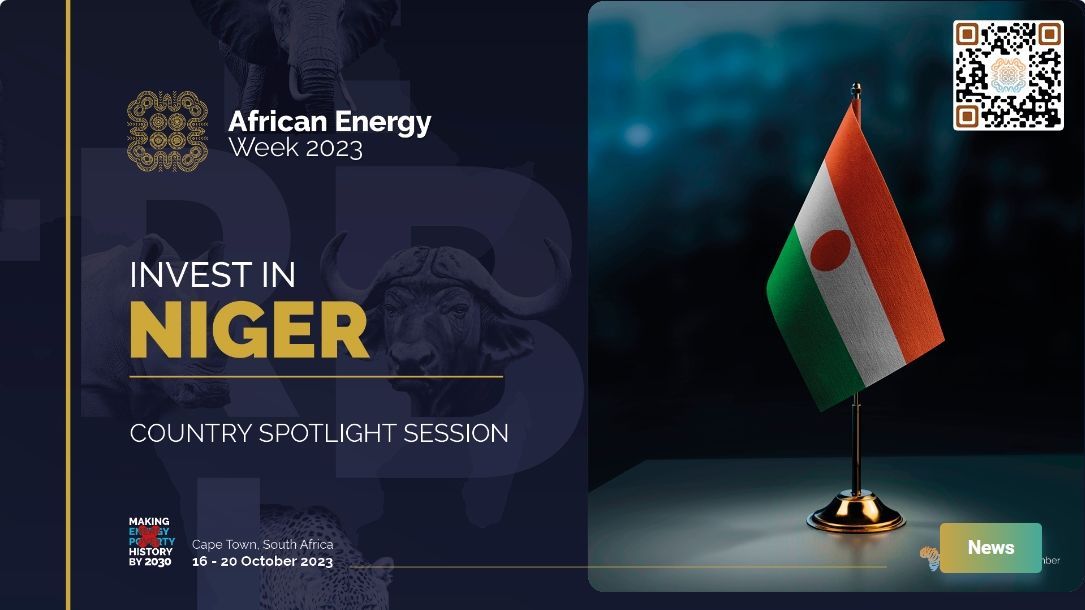
The 2023 edition of African Energy Week will host an Invest in Niger Energies country spotlight, promoting opportunities, facilitating investment and kickstarting a new wave of project developments in the country. The Government of Niger is making great strides towards opening the domestic market for foreign investment, working closely with a suite of energy players and investors to drive long-term and sustainable developments. As the market grows, the regulatory environment has been made that much more attractive, and the Government is inviting investors to join the burgeoning sector. During this year’s edition of the African Energy Week (AEW) conference and exhibition – scheduled for October 16-20 in Cape Town – a dedicated Invest in Niger Energies country spotlight session will provide potential investors with crucial insight into the developing market. Comprising a roundtable discussion, technical presentations, networking event and deal rooms, the summit serves as a networking and engagement hub for the country’s energy sector and is set to unlock a wave of opportunities and outcomes. At the center of the country spotlight is collaboration. While Niger currently produces an average 20,000 barrels of crude oil per day, efforts to ramp up exploration and the development of regional pipelines are set to increase these levels substantially. The country holds approximately 3.7 billion barrels of proven oil reserves and over 24 billion cubic meters of recoverable gas reserves, thus creating an exciting investment prospect. High oil exploration success, attractive fiscal terms and relatively low operational costs associated with the market promise high returns for players. As such, the AEW 2023 country spotlight will provide crucial updates into upstream prospects, avenues for investments and both regional and global trends. Notwithstanding an upstream push, Niger is making progress towards connecting domestic basins to regional consumers through the construction of cross-border pipeline networks. With much of Niger’s crude exported to regional markets including Nigeria, Mali and Burkina Faso, the country is eager to increase exports and facilitate intra-African trade. Projects underway include the 2,000 km Niger-Benin Pipeline, connecting Diffa in Niger to Bight of Benin. The project is currently 75% complete and on-track to transport crude this year. Additionally, the multi-billion Trans-Saharan Gas Pipeline is making progress with a taskforce and roadmap established for its development by the respective ministries of Niger, Algeria and Nigeria. The 4,128 km pipeline will run from Warri in Nigeria to Hassi R’Mel gas field in Algeria via Nigeria, creating a direct connection between Nigeria and Algeria’s gas fields while bringing significant benefits for Niger. Meanwhile, opportunities for investment transcend hydrocarbons with Niger making progress to expand its renewable energy sector. Investors have already expressed their interest in investing in the promising market, with Niger offering abundant solar and wind resources. Savannah Energy Niger Solar inked a deal with the Government this year for the development of two solar power plants with a combined capacity of 200 MW, following a 2022 deal between the company and country for the construction of a 250 MW wind project. These projects barely scratch the surface of Niger’s clean energy potential, and the AEW 2023 country spotlight will connect new players to Nigerien opportunities. “The opportunities for investment in Niger cannot be overstated. As a relatively untapped market, the country is inviting regional and global players to participate and help grow the entire energy value chain from oil and gas exploration to processing and refining to distribution and retail. The AEW 2023 country spotlight is a unique opportunity for potential investors and project developers to meet with Nigerien leaders, discuss opportunities for collaboration and sign deals,” stated NJ Ayuk, Executive Chairman of the AEC, adding that, “AEW 2023 takes place under a mandate to make energy poverty history by 2030. Investing in Niger’s energy sector will not only enable the continent to achieve this goal but promises high returns on investment for participating players.” The Invest in Niger Energies represents just one of many country spotlights set to take place during this year’s edition of AEW. Representing the premier event for the African energy sector, AEW 2023 is committed to making energy poverty history by 2030 by providing a platform where stakeholders can meet, network and sign deals. Taking place in Cape Town from October 16-20, AEW 2023 serves as the biggest gathering of energy stakeholders on the continent. For more information, visit. www.aecweek.com
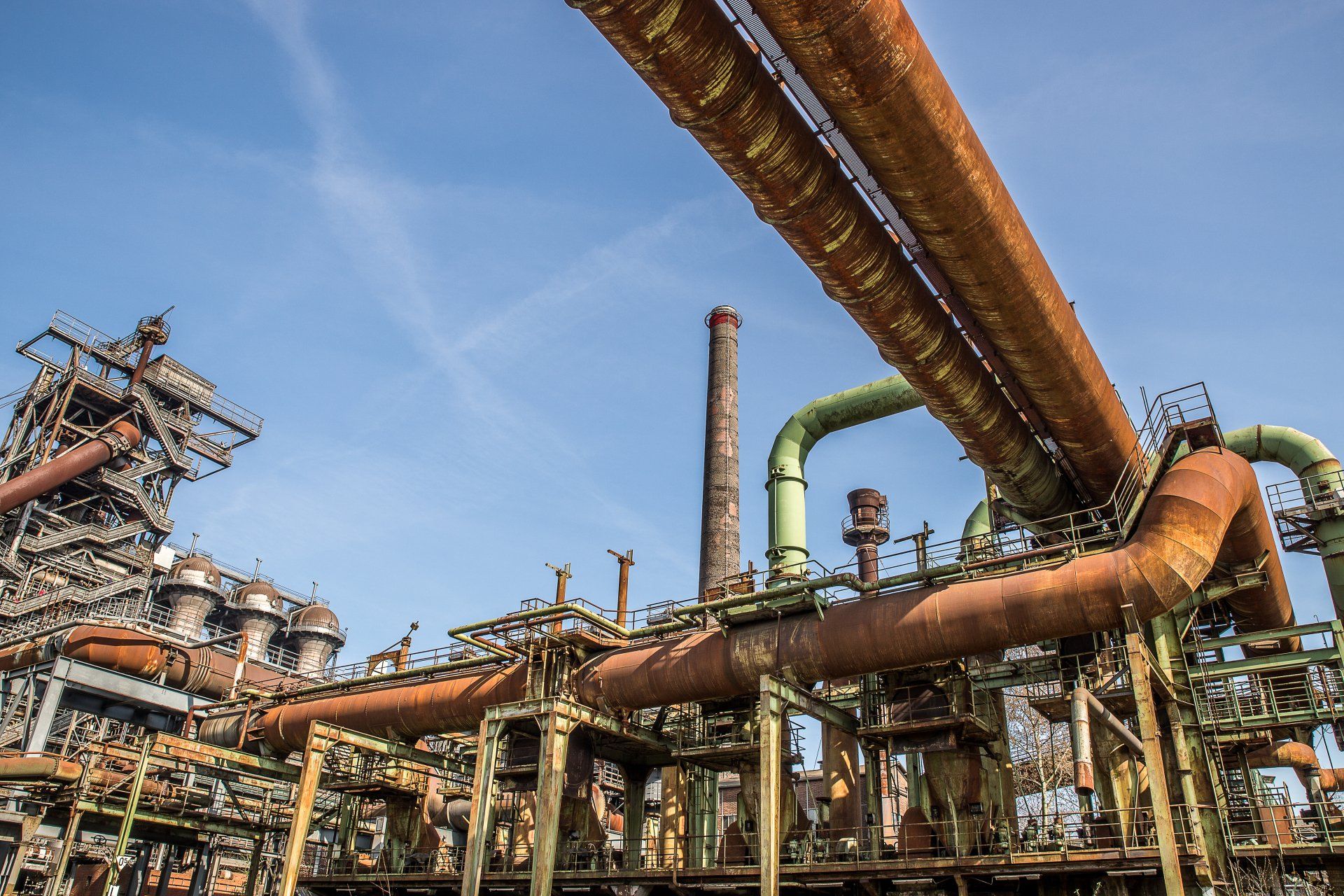
Mele Kyari, the group chief executive officer of the Nigerian National Petroleum Company Limited (NNPCL) revealed on Thursday that the NNPCL would be building a new, $8 billion international gas pipeline. Currently, a $25 billion Nigeria-Morocco gas pipeline is being built by NNPCL and its partners. It will carry gas from Morocco to Europe and send gas from Nigeria to around 11 African nations. In its latest plans, the proposed $8 billion pipeline, according to Kyari, would pass through the Niger Republic, Algeria, and eventually Europe. Kyari made this known during a panel discussion at the 8th Organisation of Petroleum Exporting Countries International Seminar taking place in Vienna, Austria. This was during his participation in a roundtable conversation at the seminar titled “Eradicating Energy Poverty.” He said, “We are building a $25bn pipeline from Nigeria to Morroco through 11 West African countries. There’s another pipeline we are planning to build through Niger Republic, and through Algeria into Europe also, and the potential is between $7bn to $8bn. “We are also expanding our current LNG (Liquefied Natural Gas) facility with another train. And, of course, what that does is that it doubles the capacity of the current facility and this is going to be made available to the market.” Source: https://www.ripplesnigeria.com/nnpcl-reveals-plan-to-build-another-8bn-pipeline-through-niger-republic-to-europe/ Visit NNPCL web page
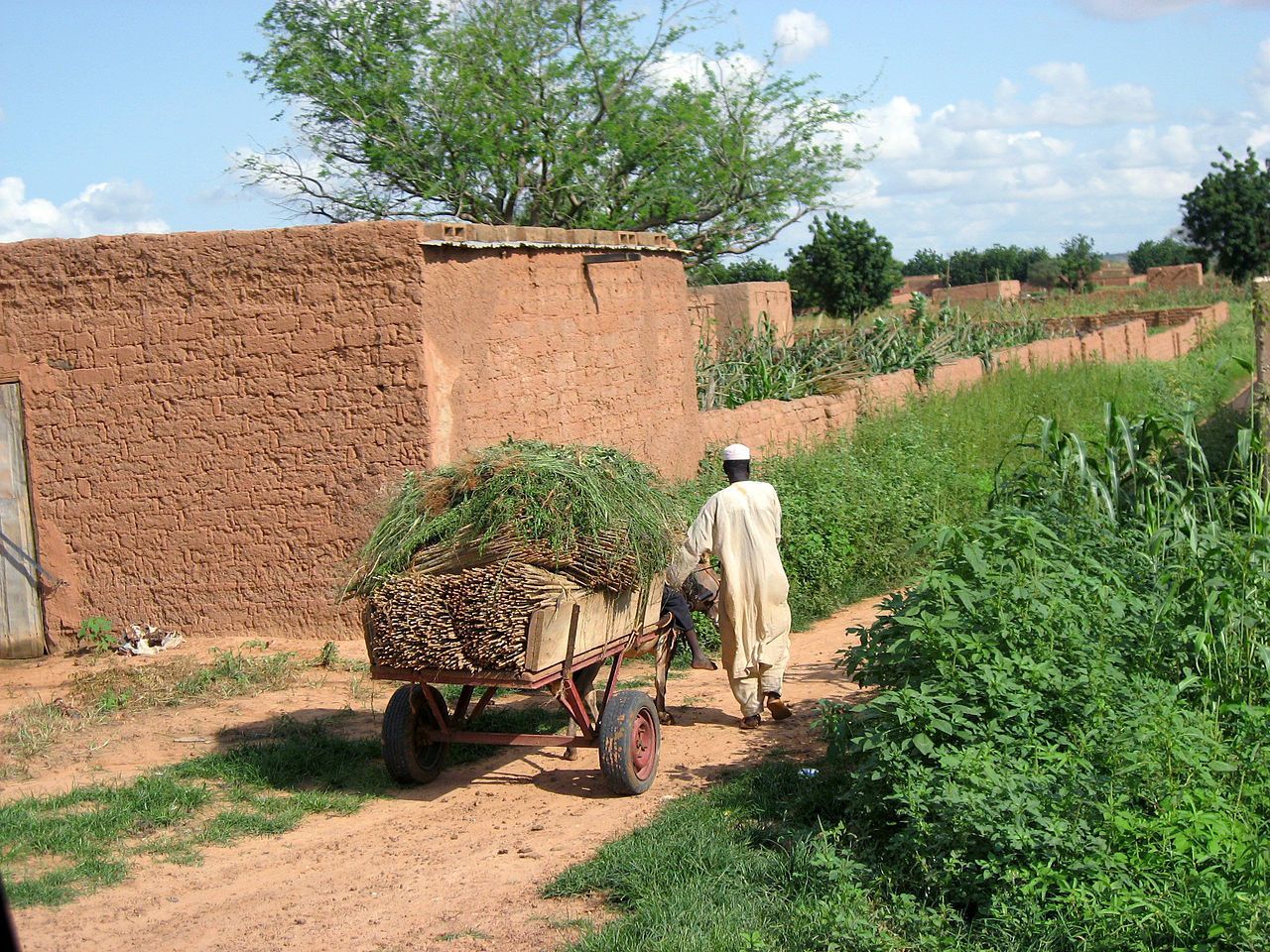
Après deux années marquées par une croissance terne, l'économie nigérienne s’est fortement redressée en 2022. Un rebond qui s'explique principalement par une bonne saison agricole, à la faveur de précipitations favorables et d’une expansion des terres irriguées. Cependant, un degré élevé d’incertitude et des risques pourraient à l’avenir affecter la croissance, comme la situation sécuritaire et les chocs climatiques. Telles sont les conclusions de la dernière note sur la situation économique du Niger publiée aujourd'hui par la Banque mondiale. Ce rapport presente une vue d’ensemble de la conjoncture économique et des niveaux de pauvreté au Niger en 2022, ainsi que les perspectives de croissance pour les trois prochaines années. Dans un dossier spécial intitulé Renforcer la résilience financière des éleveurs face à la sécheresse , les auteurs analysent également l’intérêt pour les éleveurs de recourir à des instruments de financement et d'assurance des risques de catastrophe afin d'atténuer les conséquences socio-économiques néfastes des chocs climatiques. « L'élevage ocupe une place prédominante dans l'économie nigérienne, avec une contribution de près de 15 % au PIB. Or, ce secteur est fortement exposé aux chocs climatiques, explique Han Fraeters, responsable des opérations de la Banque mondiale pour le Niger. Les solutions de financement et d'assurance des risques de catastrophe peuvent contribuer de manière décisive à atténuer les effets néfastes des chocs climatiques sur les éleveurs, qui constituent l'une des populations les plus pauvres et les plus vulnérables du pays. Ces communautés sont très exposées à ces chocs et peinent à les gérer et à s'en remettre. » La champagne Agricole favorable de 2022 a tiré la croissance économique, entraînant une augmentation de 7,5 % du revenu moyen par habitant. Cette hausse a fait diminuer le taux de pauvreté de 6,4 points de pourcentage entre 2021 et 2022, entraînant une réduction du nombre de pauvres. Ce taux devrait continuer à baisser pour s’établir à 45,2 % en 2025. La Croissance économique nigérienne devrait suivre une tendance positive en 2023, pour atteindre un taux de 6,9 %, et pratiquement doubler à l’horizon 2024 (12,5 %) si les autorités réalisent leurs objectifs de production pétrolière. Le déficit budgétaire devrait se réduire en 2023 pour ressortir à 5,3 %. Cependant, pour ramener le déficit à 3 % du PIB, conformément au critère de convergence fixé par l'Union économique et monétaire ouest-africaine (UEMOA), le gouvernement devra assurer une gestion rigoureuse des revenus pétroliers attendus, mobiliser des recettes non pétrolières et gérer avec efficacité les pressions sur les dépenses dans un contexte de chocs fréquents. « Il faut améliorer de toute urgence la gestion du secteur pétrolier et des recettes futures en adoptant une stratégie assortie d'une feuille de route précise pour la mise en place et en œuvre d’un fonds de stabilisation. Ce fonds devra être basé, entre autres, sur un prix de référence. Son objectif sera de protéger le budget contre la volatilité des prix du pétrole et de garantir une utilisation des nouvelles ressources de manière efficace pour réduire la pauvreté et renforcer la croissance à long terme », affirme Blaise Ehowe Nguem, économiste à la Banque mondiale en charge du Niger et coauteur du rapport. Le Niger est fortemente exposé aux chocs climatiques, ainsi qu'au risque de détérioration de la situation sécuritaire. Ces facteurs pourraient susciter un fort mécontentement social et entraîner des dépenses publiques supplémentaires, ce qui compromettrait la réalisation des objectifs budgétaires. « Le Gouvernement du Niger déploie des efforts considérables pour mettre en œuvre des réformes pour soutenir une croissance durable, note Paolo Di Lorenzo, économiste senior à la Banque mondiale et coauteur du rapport. Toutefois, compte tenu des multiples incertitudes causées par diverses crises, dont le changement climatique, les priorités doivent être redéfinies et renforcées. Il faut notamment améliorer la mobilisation et la gestion des recettes publiques afin de tirer pleinement profit des possibilités de croissance et de progression du bien-être social, mais aussi renforcer la résilience aux chocs. » Source: https://www.banquemondiale.org/fr/news/press-release/2023/06/19/niger-strong-agricultural-season-boosts-economic-rebound-in-2022
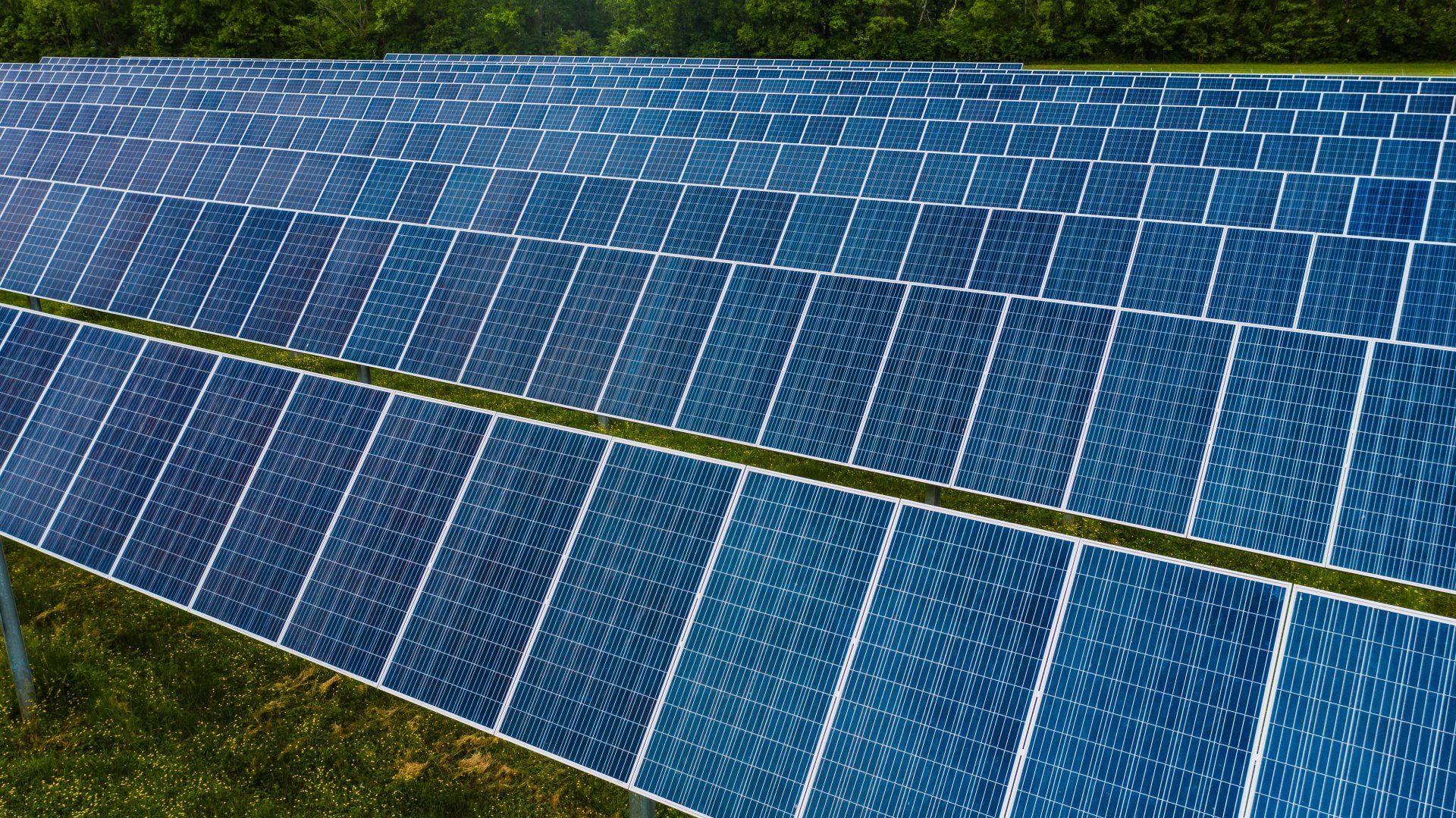
Le président nigérien Mohamed Bazoum a présidé, mercredi, la cérémonie d'inauguration d'une centrale solaire d'une capacité de 30 mégawatts à Gorou Banda, un site situé à quelques kilomètres de la capitale Niamey. La cérémonie s'est déroulée en présence du Haut Représentant de l'Union Européenne pour les Affaires étrangères et la Politique de sécurité, Josep Borrell, arrivé mardi à Niamey dans le cadre d'une visite de travail. "Cette infrastructure que nous inaugurons aujourd'hui est un élément emblématique entre le Niger et l'Union européenne parce que produire l'électricité renouvelable est une nécessité pour le Niger, pour l'Afrique et pour le monde entier", a indiqué Borrell dans une intervention lors de la cérémonie. Dans son discours d'inauguration, le ministre d'État nigérien de l'Energie et des Energies renouvelables, Ibrahim Yacoubou, a indiqué que la nouvelle centrale solaire est "la plus grande jamais réalisée au Niger". Il a précisé qu'elle a été construite dans le cadre d'un partenariat entre l'Union européenne, l'Agence française de développement et le Niger et qu'elle permettra d'alimenter 70 mille ménages, soit environ 500 mille personnes en électricité pour la région de Niamey. Depuis son accession à l'indépendance en 1960, le Niger achète l'essentiel de son énergie électrique auprès du Nigeria. Source: https://www.aa.com.tr/fr/monde/niger-inauguration-dune-centrale-solaire-de-30-m%C3%A9gawatts-pr%C3%A8s-de-niamey/2938290#
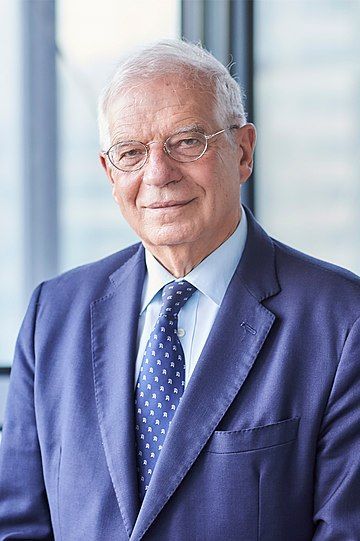
On 5 and 6 July, the High Representative of the Union for Foreign Affairs and Security Policy/Vice-President Josep Borrell will travel to Niger. He will hold bilateral meetings and visit the EU civilian mission EUCAP Sahel Niger . The visit will offer an opportunity to further strengthen the EU-Niger partnership and to engage on a variety of bilateral, regional and global issues. These will include, amongst others, Niger’s socio-economic development and humanitarian questions, the stability of the Sahel region and the fight against terrorism and organised crime, the two CSDP missions EUCAP Sahel Niger and EUMPM Niger , migration, the green transition well as other global affairs and Russia’s aggression against Ukraine. On 5 July, the High Representative will be received by President Mohamed Bazoum and will have a meeting with the President and several ministers in Niamey. Following the meeting, the HR/VP will have a doorstep that will be broadcast on EbS . High Representative Borrell will then inaugurate together with President Bazoum and Nigerien ministers the Gouro Banda solar power plant, co-funded by the European Union. The inauguration and a press point will be available on EbS . In the evening, the HR/VP will visit EUCAP Sahel Niger and preside over a medal parade. On 6 July, High Representative Borrell will travel to Agadez, where he will meet the Governor Sadou Soloké and the President of the Regional Council, Mohamed Anako. In the afternoon, he will visit the field office of EUCAP Sahel Niger in Agadez and the EU-funded social housing project DESERT. The High Representative will also meet the Sultan Oumarou Ibrahim Oumarou of Agadez and visit the Mosque in the old city. Source: https://www.eeas.europa.eu/eeas/media-advisory-high-representative-josep-borrell-travels-niger_en
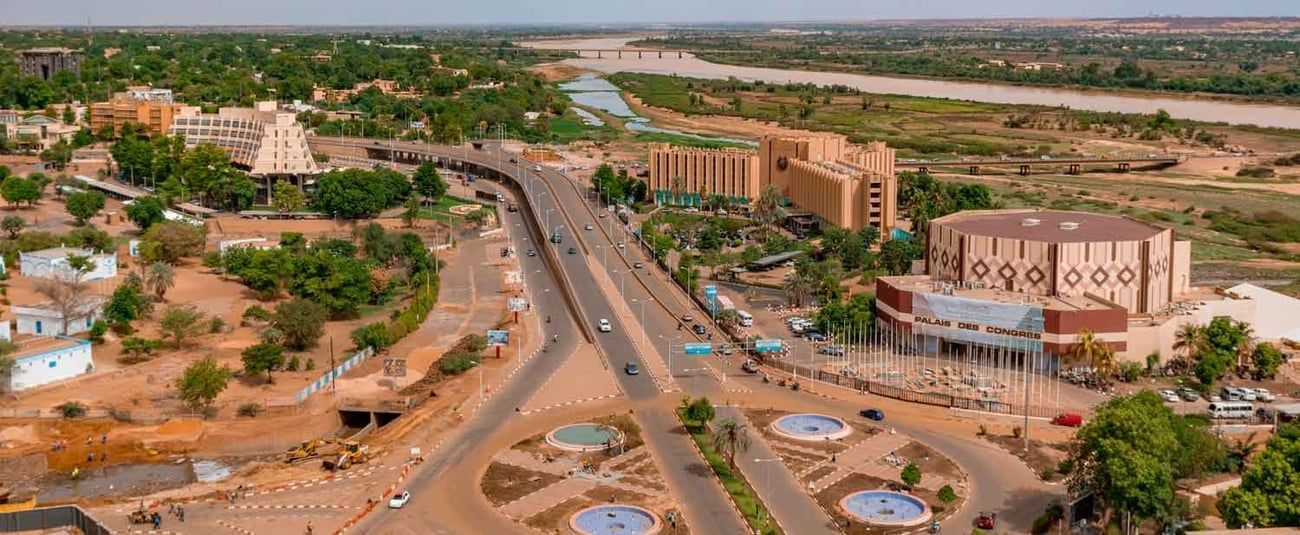
A China vai construir, em Niamey, um parque industrial que abrangerá vários domínios, nomeadamente agro-alimentar, transformador, mineiro e imobiliário. O Presidente da República da República do Níger, Chefe de Estado, SE Mohamed Bazoum, recebeu na segunda-feira, 3 de julho de 2023, o Embaixador da República Popular da China no Níger, Sr. Jiang Feng. A China vai construir, em Niamey, um parque industrial que abrangerá vários domínios, nomeadamente agro-alimentar, transformador, mineiro e imobiliário, disse Jiang Feng à saída da audiência. A construção deste parque industrial é a concretização dos resultados do Fórum de Investimentos China-Níger, que se realizou com “ grande sucesso ” no dia 26 de abril de 2023 na capital nigeriana, sob a presidência do Primeiro-Ministro, Chefe do Governo, SEM Ouhoumoudou Mahamadou, indicou, sublinhando que “ a China faz o que diz e diz o que faz" O diplomata chinês acrescentou que prestou ao Presidente Mohamed Bazoum um breve relato da sua recente visita a Agadem II, ponto de partida do Oleoduto de Exportação Níger-Benin (PENB), que levará o petróleo nigeriano ao porto de Seme. Fonte: https://www.temoignages.re/international/nouvelles-d-afrique/cooperation-niger-chine-construction-d-un-parc-industriel,107660
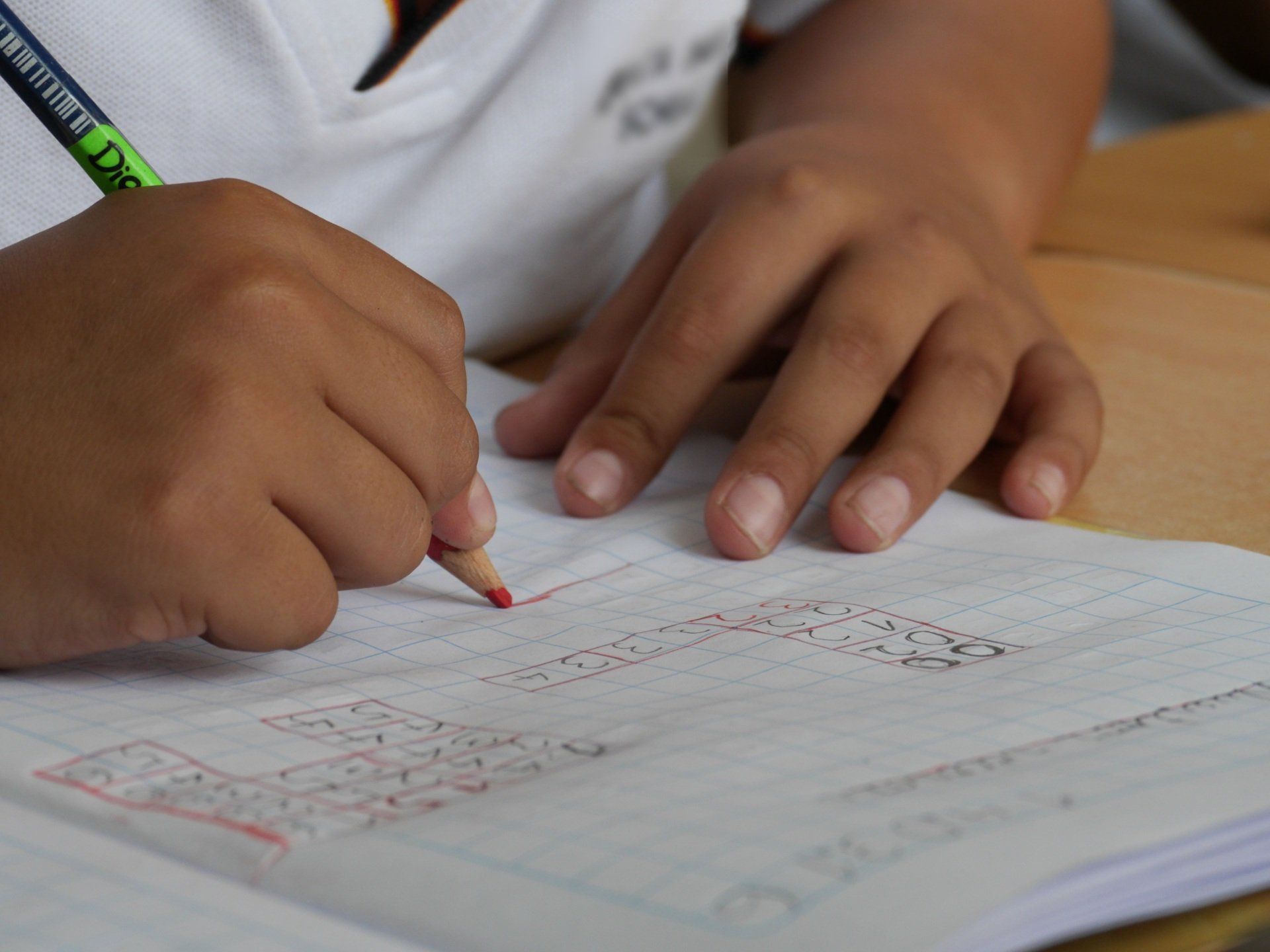
A União Europeia reforça a sua parceria com o Níger, com um investimento de 66 milhões de euros nas prioridades nacionais do país, principalmente para a educação e a juventude, no âmbito do pacote de investimento Global Gateway África-UE. A educação é um domínio fundamental da excelente parceria UE-Níger, com as prioridades partilhadas em matéria de igualdade de género, professores, competências e aprendizagem de elevada qualidade. O financiamento anunciado hoje dará um forte apoio às reformas do governo. Jutta Urpilainen , Comissária responsável pelas Parcerias Internacionais, declarou: «Tenho o prazer de anunciar uma dotação de 66 milhões de euros ao abrigo do pacote de investimento UE-África Global Gateway para apoiar as prioridades políticas do Níger, em especial em matéria de educação. Investir numa educação de qualidade para todos é crucial para combater as desigualdades e alcançar um desenvolvimento social e económico sustentável. O reforço das competências e dos conhecimentos das crianças e dos jovens, com especial destaque para as mulheres e as raparigas, é uma prioridade comum do Níger e da União Europeia.» O Presidente Mohamed Bazoum, do Níger, manifestou igualmente a sua satisfação, afirmando: «Congratulo-me com esta dotação, que reflete a parceria estratégica entre o Níger e a UE. Apoiará os esforços do Governo do Níger na sua principal prioridade para melhorar a educação para as próximas gerações, mas também para enfrentar os desafios multidimensionais enfrentados pelo país.» A educação como ponto focal da parceria UE-Níger no âmbito da Global Gateway Na Cimeira sobre a Transformação da Educação em 2022, o Níger comprometeu-se a reforçar o seu sistema educativo e a melhorar a qualidade da aprendizagem e a sua continuidade em situações de emergência. O novo plano do governo para o setor da educação e formação a partir de 2024 visa, por exemplo, combater as disparidades de género e aumentar o recrutamento e o destacamento de professores; prioridades que correspondem às da UE para os seus investimentos no domínio da educação no âmbito do Global Gateway. A UE investe no sistema educativo do Níger em consonância com o plano do Governo através do apoio orçamental e do Fundo para o Setor da Educação (Fonds Commun Setoriel pour l’Education). Outros investimentos da UE em matéria de educação de que o Níger beneficia incluem o programa emblemático Global Gateway UE-África «Mobilidade dos Jovens para África», os programas regionais como o reforço do ensino no G5 Sael, e fundos como a Parceria Global para a Educação, a Educação Não Pode Esperar e a Iniciativa do Centro. Os Estados-Membros da União Europeia contribuem para reforçar a educação e o ensino e formação técnicos e profissionais do Níger através da Iniciativa Equipa Europa n.º #NigerGenerationsFutures. A União Europeia é o maior investidor externo na educação no Níger. A educação como parte do pacote de investimento UE-África Global Gateway O Global Gateway é sinónimo de ligações sustentáveis e de confiança que funcionam para as pessoas e para o planeta. O pacote de investimento Global Gateway África-Europa visa apoiar África para uma recuperação e transformação fortes, inclusivas, ecológicas e digitais. A educação é um pilar fundamental da Global Gateway, essencial para permitir a prosperidade, a paz e o bem-estar das pessoas e do planeta. No âmbito do Global Gateway, a União Europeia está a aumentar significativamente o seu investimento na educação nos países parceiros, consagrando-lhe mais de 10 % do seu orçamento para as parcerias internacionais. Fonte: Direção-Geral das Parcerias Internacionais , Bruxelas
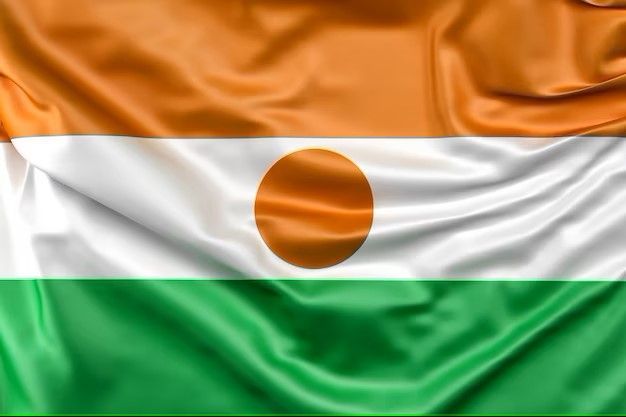
Niger Interesting Facts Niger, officially the Republic of the Niger, is a country in Africa. Here are some interesting facts about Niger: One of the hottest countries in the world is Niger. Niger has the largest protected area in Africa. In 1890, Niger became a French colony. It remained a French colony until 1958, when it became an autonomous republic of the French Community. The 30-foot herbivorous dinosaur lived in the region of Niger around 100 million years ago. A dinosaur named after the country and it is called Nigersaurus. Niger gained independence in 1960. Niger is home to the tallest mudbrick structure in the world. The Niger River is clean, unlike the Nile. This is due to the absence of silt. Niger is part of the Great Green Wall of Africa Project. Niger has eight languages that are classified as national languages, but the official language is French. Niger is home to one of the most famous animal paintings in the world. The petroglyph of the giraffe Dabu is a life-size depiction of two giraffes that are 10,000 years old. The prehistoric art is found in an isolated location in the Sahara, in an area known as the "Tenere Desert". Humans have lived in Niger for over 50,000 years. Niger known as the “Frying Pan of the World". Niger is divided into seven regions with one main district, the capital Niamey. Niger is known for its vibrant music scene, which is a fusion of traditional and modern styles. Tenere Music is one of the most popular musical genres in Niger, it is named after the Tenere Desert in northern Niger. One of the most famous lively festivals in Niger is the Gerewol Festival, a courtship festival celebrated by Wodaabe nomads. Some of the most popular dishes in Niger include millet porridge, stews, and spicy meats and vegetables. Markets in Niger are a great place to find unique handicrafts, including jewelry, textiles, and pottery. The Niger River is over 4,000 km long and flows through Niger before moving on to other countries such as Mali and Nigeria. The majority of Niger's population is Muslim, but there is also a significant Christian minority. The national symbols of Niger include the Sahelian cheetah as the national animal, the Hausa horsemen as the national emblem, and the Dallol Bosso Falls as a national monument. Niger borders with Nigeria and Benin to the south, Burkina Faso and Mali to the west, Algeria and Libya to the north and Chad to the east. Source: https://globalconnect.uz/interesting-facts-about-niger
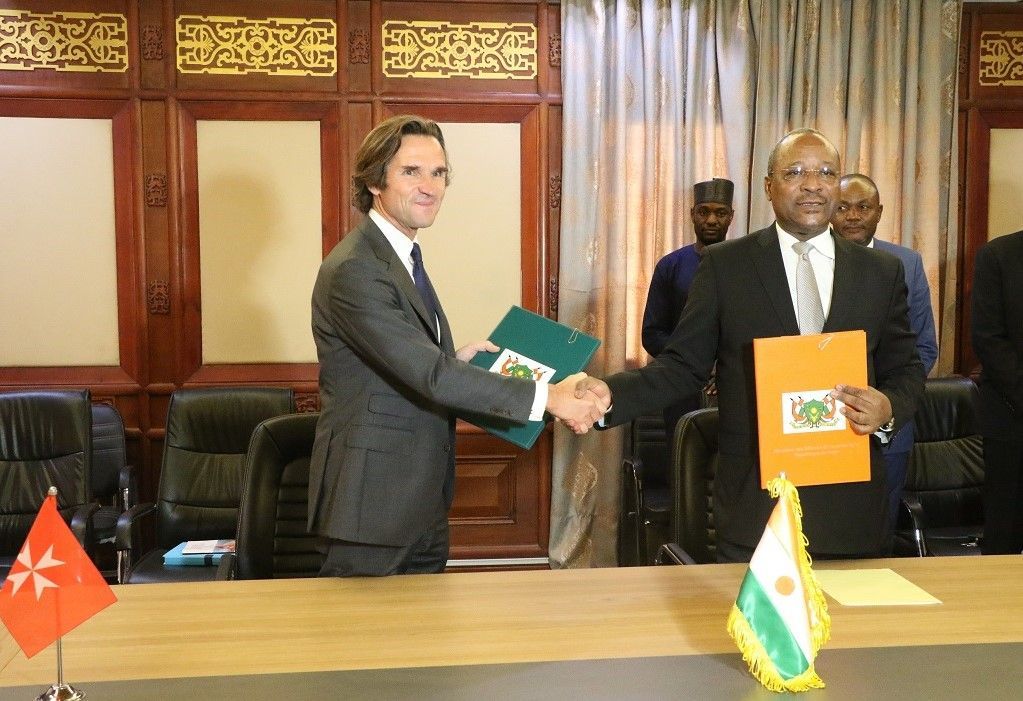
Le Niger et l’Ordre souverain de Malte, ont signé ce lundi 26 juin, un accord de coopération en vue de promouvoir l’action hospitalière, sanitaire et d’assistance de l’Ordre dans le pays ouest-africain et de mener toutes les actions permettant d’améliorer la santé publique au Niger. L’accord signé par le ministre d’Etat, des Affaires Etrangères et de la Coopération du Niger, Hassoumi Massoudou et l’ambassadeur de Malte à Niamey, Olivier De Preville, définit également les privilèges, facilités et immunités entre diplomates, les personnes mandatées et les organisations subordonnées des deux parties. Massoudou a tenu à remercier les autorités de l’Ordre Souverain de Malte pour l’assistance apportée au Niger qui est «confronté depuis quelques années à une crise sécuritaire sans précédent et à un défi humanitaire, à l’instar d’autres pays du Sahel, notamment le transport et la distribution de médicaments à l’Hôpital de Niamey, à des dispensaires, à des Centres de santé communautaires et à des congrégations religieuses catholiques…». «Nous avons de très beaux projets ensemble dont un en particulier, sur la drépanocytose. Et donc nous avons le projet de pouvoir construire un nouveau Centre. J’espère que ce sera le début d’une belle collaboration à venir», a pour sa part déclaré l’ambassadeur de Malte près la République du Niger. Le Niger fait face à de nombreux défis, notamment climatiques et sécuritaires, avec une très forte présence de jihadistes liés à Al-Qaïda et au groupe Etat islamique dans sa région sahélienne ainsi que des flots de réfugiés sur son sol. Son économie reste peu diversifiée, peu industrialisée et dépendante de l’agriculture à hauteur de 40% de son PIB, selon la Banque mondiale. Ce qui en fait un des pays les plus pauvres au monde. Source: https://www.agenceafrique.com/45087-lordre-souverain-de-malte-et-le-niger-signent-un-accord-de-cooperation-dans-le-domaine-de-la-sante.html

The World Bank’s Board of Executive Directors today approved US$230 million in additional financing for the Niger Learning Improvement for Results in Education Project (LIRE), which aims to help the government of Niger improve access to education; quality of teaching and learning environments; and strengthen education planning and management in Niger. Niger’s education system is evolving in a context marked by heavy demographic pressure, limited resources, and risks of major vulnerabilities. Despite recent progress, improving access and learning outcomes remains a significant challenge. For example, temporary school structures built with straw reduce learning time and overall school attendance as they are dismantled during the rainy season or are at risk of catching fire during the dry season. This severely affects the coverage and completion of universal primary education, with low enrollment rates and high drop-out rates. In addition, security issues amplify disparities in access to education with schools closing in areas where insecurity persists, such as in the Tillaberi region where over 900 schools were closed according to the government as of early June 2023. “Teaching children in classrooms with extreme conditions hinders their learning,” says Han Fraeters, World Bank Country Manager for Niger. “It is imperative to provide Nigerien girls and boys with suitable learning environments. This will enable them to benefit from quality education and contribute to building a better Niger.” The additional financing will help address the country’s education challenges over the next six years by focusing on building permanent classrooms and promoting girls’ access to quality education through the construction of boarding schools for girls. “This funding will deepen and broaden the impact of the LIRE project by reinforcing successful activities while introducing new initiatives to enhance the overall quality of learning, ” says Waly Wane, World Bank Education Practice Manager for West and Central Africa. “It will strengthen the project’s overall development impact by financing the construction of schools across the country, piloting girls’ boarding schools to increase access and retention rates, and improve learning outcomes. ” The additional funding is from the International Development Association (IDA)* and is in line with the Policy Statement of Niger through its axis three devoted to human capital development. Additionally, it aligns with Sustainable Development Goal 4 (Ensure inclusive, quality education for all and promote lifelong learning). The Sahel White Paper also emphasizes the importance of increasing equitable access to high-quality education, especially among girls. Moreover, the funding supports the World Bank’s country strategy and ongoing technical and financial support to the education sector in Niger. *The International Development Association (IDA) is the World Bank’s fund for the poorest. Established in 1960, it provides grants and low to zero-interest loans for projects and programs that boost economic growth, reduce poverty, and improve poor people’s lives. IDA is one of the largest sources of assistance for the world’s 76 poorest countries, 39 of which are in Africa. IDA resources help effect positive change in the lives of the 1.6 billion people living in the countries that are eligible for its assistance. Since its inception, IDA has supported development work in 113 countries. Annual commitments are constantly on the rise and have averaged $21 billion over the past three years, with about 61% going to Africa. Source: https://indiaeducationdiary.in/the-world-bank-approves-funding-to-help-niger-improve-its-education-system/
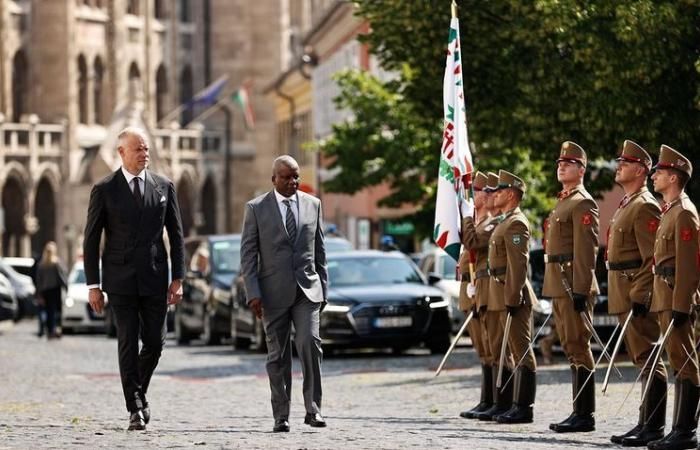
The bilateral discussions we held were mutually agreed upon. We want to learn from your experience in the field of defense policy, and we also want to share our experience gained in the fight against terrorism, said Alkassoum Indattou, Minister of Defense of the Niger government, on Monday in Budapest, where he and the Minister of Defense of Hungary signed the defense agreement between the two countries. declaration of intent. Kristóf Szalay-Bobrovniczky said that Hungary is of the position, and has always thought, that the problem should be solved where it arises, and the agreement with the Niger government also helps with this. Photo: Arpad Kurucz The minister said that during his two-day visit, they got to know Hungary’s defense policy. “I myself was convinced of the high level of defense industry and politics in Hungary,” he added. As he explained, the agreement concluded between the two countries will not only be limited to military training, equipment, and military infrastructure, but also to the strengthening of our military capacities. – I am convinced that this agreement creates a new opportunity for our countries to promote peace, security and prosperity – concluded the minister. Historic meeting with the Niger minister Kristóf Szalay-Bobrovniczky, Minister of National Defense of Hungary, said that today’s bilateral meeting is historic, as there has never been a meeting of this level between our country and Niger. The minister said: The Sahel region is the southern gate of Europe, and “Hungary is of the position and has always believed that the problem should be solved where it arises”. That is why, according to the head of the ministry, the agreement that has just been concluded between Niger and Hungary is of particular strategic importance. The minister and I reviewed the security situation in the Sahel in detail, both with regard to terrorism and migration. We appreciate the Niger Republic’s commitment to stability and peace. This is one of the cornerstones of the region’s security said the Minister of National Defence. Kristóf Szalay-Bobrovniczky informed the Minister of Defense of the Republic of Niger that Hungary will soon take over the presidency of the European Union, and that “under our presidency, we will pay special attention to the security of the Sahel”. must stand. We also cooperate in terms of development, economy and security – concluded the head of the ministry. Cover photo: Kristóf Szalay-Bobrovniczky and Alkassoum Indattou, Minister of Defense of the Niger Government (Photo: Árpád Kurucz) Source: https://hungary.postsen.com/local/209188/Historic-military-agreement-between-Hungary-and-Niger.html

Niger, officially known as the Republic of Niger, is a West African country where thousands of marriages are performed annually. The country is popular for having some of the world's largest uranium deposits. More than 98 percent of the total population of Niger are Muslims, and most of the principles guiding the act of marriage are based on customary laws. The types of marriages accepted in the country are civil, religious, and customary marriages. Customary marriages are primarily performed by native Nigeriens, and foreigners who plan on getting married in the country may conduct a civil or religious marriage. Child, early, and forced marriages are quite common in Niger. The minimum legal marriage age for boys and girls is different. That of the male spouse is 18 years, while that of the female spouse is 15 years. Under special circumstances, spouses below these ages may be allowed to perform a marriage in Niger. In the Human Development Index, Niger ranks last, with a high level of poverty running across the country. There are several factors that contribute to the high number of child marriages in the country. About 76 percent of the total number of marriages performed in the country involve one or more spouses below the age of 18. The high level of poverty and gender inequality in the country are major reasons for the high number of child marriages. Since the country uses customary law and the principles of Sharia, early marriages are prevalent. Generally, in Islam, Sharia law permits both male and female spouses who have reached the age of puberty to get married. Over the years, there have been various propositions to amend the marriage age bill so as to ensure equality between both spouses by raising the minimum age of girls to match that of boys at 18 years. Continue reading to find out more about the marriage traditions in Niger. Civil marriages Civil marriages in Niger must take place in the city hall known as the Mairie. There is not a lot of flexibility with the choice of location of marriage in the country, and if any marriage ceremony is performed outside the city hall, it may result in its nullification. All civil marriages performed in Niger are legally binding. The civil marriage is conducted by the Nigerien Civil Authority (officier de l’état civil). This includes the mayor and any authorized representative. In this country, marriage can only take place between two unrelated people. Spouses who are related either by blood or adoption are not allowed to perform a civil marriage in Niger. This law applies to both foreigners and native Nigeriens. If the laws of the country of a foreigner accept the marriage between adoptive siblings or parents, such laws are not transferable to Niger. Foreigners are required to comply with the marriage laws of Niger to get married in the country. Civil marriages can also be performed at the embassy or consulate of Niger in another country. This option is often explored by citizens of the country who are abroad temporarily for one reason or another. At the embassy, some of the documents required may be slightly different from those at city hall. The city hall used for the marriage ceremony must be located in the same municipality where the spouses live. More attention is now paid to the marriage age in Niger so as to reduce the number of child marriages and early marriages. Therefore, marriage officers pay a lot of attention and carry out background checks where necessary to ensure all the information provided during the marriage registration is true. The process of verifying documents for foreign spouses may take more time than that of a Nigerien national. During the marriage registration, both spouses are required to provide witnesses who will also sign the marriage certificate. The witnesses provided must be at least 18 years old and have the legal capacity to act as witnesses in a marriage ceremony. The country does not allow proxy marriages. Both spouses must be physically present from the time the marriage application is submitted until the marriage is registered. To perform the ceremony, the spouses often do not have to pay any fees; however, there are fees that must be paid in order to obtain the marriage certificate. To speed up the process of getting married, the spouses may be required to pay some extra fees too. Also, to perform a civil marriage, both spouses must be single. Customary marriages allow polygyny; however, the reverse is the case with civil marriages. A single man is only allowed to marry a single woman at a given point in time. The documents required during the marriage registration are stated below. Documents Required A valid means of identification. This includes a Nigerien national ID card or a valid passport from a foreign spouse. Copies of certified birth certificates must be provided by both spouses. Both partners are required to provide at least two unrelated spouses who are at least 18 years old. The witnesses provided are also required to submit valid means of identification. A certificate of residence may be required from a foreign spouse. This certificate is often obtained from the central police station. Affidavit of marital status This is a document that will show that both spouses are single at the time of marriage. Certificate of freedom to marry Religious and customary marriages Religious and customary marriages are recognized and protected by law in Niger. The process of contracting either of these marriages is quite different from that of civil marriages. About 99 percent of the total population of Niger is Muslim. Christianity and Animism are practiced by less than 0.5 percent of the population. The rest of the people in the country have no religious affiliations. Most of the laws guiding marriage in the country are customary laws. Right from the beginning, traditional marriages have been popular in Niger, where various unique ceremonial rites are performed during the ceremony. Muslim marriages often involve the participation of both families. The planning period for these types of marriages often takes months, and the actual wedding ceremony itself can last for multiple days. How long the wedding takes often depends on the financial buoyancy of the spouses and their respective families. Muslim marriages often include the "nikah," where the bride and groom sign a marriage agreement stating the responsibilities of both partners in the union. Marriage traditions in Niger Dowry To get married in Niger, the groom is required to go to the bride's family's house to make an official marriage proposal. If the family of the bride accepts the groom's proposal, the groom is presented with a dowry, which must be paid in full to the bride's family before they can continue with other marriage preparations and the final ceremony. Mahr The Mahr is a unique custom in Muslim weddings. It generally refers to an obligation that must be carried out by the groom. The groom is required to give the bride a mahr, which can be money or any other item agreed upon such as livestock, landed properties, etc., before the final marriage processes take place. Wedding Feast Wedding ceremonies in Niger are often filled with a lot of food and drink. The bride's family often hosts the wedding feast, where the groom's family is invited as well as other members of the family and friends. A lot of traditional meals are served during the wedding feast, and the party often lasts for several hours. Same-sex marriages in Niger Same-sex marriages are illegal in Niger. The status of being a homosexual holds legal status in the country; those who practice this have no form of discrimination protection. To date, there are still a lot of people in Niger who frown at the idea of homosexuality. Polygamous marriages in Niger Polygamy is legal under the customary laws of Niger. A man is allowed to marry more than one wife, provided he treats them equally and fairly in a traditional marriage. Marriages performed civilly have a monogamous nature and should only be between a single man and a single woman. However, there are cases where this law is not abided by. Marriage Laws and Rights, Costs and Duties Laws The law of marriage in Niger is regulated by three sources of law known as the public law, Islamic law, and customary law; they all work hand in hand to create the rules for marriage in the country. In Niger, the legal age for marriage is set at 21 years for both men and women without parental consent, but couples who are 18 and 15 years old, respectively, are required to provide parental consent before they are allowed to contract marriage in Niger. Both the husband and wife are required to give consent to marriage; they must be in a stable state of mind to be able to contract marriage, and they both must have an accurate understanding of the concept of marriage before they are allowed to contract marriage. Around 99% of the population is Muslim as stated earlier; therefore, a large number of marriages are conducted according to the dictates of Islam. While the husband is allowed to give consent and contract marriage by himself, the wife is not allowed to do so. Her legal guardian, Wali, or father is responsible for consenting to the marriage on her behalf; her consent to the marriage is thought to be her silence in response to the marriage agreement. The law also states that Muslim men are allowed to contract marriage with non-Muslim women, while women are not allowed to do the same. Same-sex couples are not allowed to carry out any activity, let alone contract marriage, in the country. Cohabitation and informal unions are not recognized by the law of the country; the only recognized marital union in Niger is a civil marriage or religious marriage, also known as an Islamic or customary marriage, done according to the law of the country and the dictates of the couple's religion or according to customs and traditions in the country. All marriages must be registered under the law, and failure to do so attracts a punishment of paying fines to the government. Polygamy is allowed under the Islamic laws of marriage; a man is allowed to marry more than one wife at the same time, while the concept of polyandry is forbidden in the country. The law that states that all couples must be single at the time of marriage does not apply in Niger since polygamy and bigamy are allowed in the country. A divorced or widowed woman is required by law to provide a certificate of death or divorce to prove that previous marriages have been dissolved. Rights Despite the various laws of marriage in the country, the rights of married couples are determined by the Islamic laws; therefore, women are not granted the same rights in marriage as men. The husband and wife have equal rights in certain things, such as the right to procreate and raise the children according to the beliefs of the couple, the right to participate in certain economic and political activities without restrictions, and that's about it. The remaining rights of women are limited by the law, such as the right to exercise parental authority or to be regarded as the legal guardian of the children. This right belongs to the father alone; he is also granted the right to be recognized as the head of the household; the wife does not possess this right, and even at the demise of the husband, the right is passed to the next male in the family of the husband. The right to work is limited for the wife as well; the husband has the autonomous right to stop her from working if he thinks the work is affecting her role in the home, even if he is not working. In terms of the right to divorce, the husband has the total right to divorce his wife without reason through the use of talaq; all he has to do is utter "I divorce you" three times, and the divorce stands. On the other hand, the woman only had the right to divorce if she could prove her reasons to the court beyond a reasonable doubt. The only other way a wife has the right to divorce is through khul, where she is required to pay a certain amount of money to her husband to grant her divorce. The wife has the right to demand maintenance from her husband for herself and the children, and in return, the husband has the right to demand obedience from his wife by all means. The right to move around freely without restrictions is available to both the husband and wife; however, under customary and religious laws, the wife is obligated to receive permission from her husband before she can travel or leave the house. Unlike unmarried women, married women do not have the right to choose their own residence; they have to live with their husbands, who have the right to decide the residence of the family. Costs Marriage in Niger is a big deal due to the bad economy of the country. The groom must pay the mahr, or dowry, to the bride's family; the dowry often includes livestock, groceries, and sometimes money; it all depends on what the bride's family requests and how wealthy the groom's family is. The average cost of marriage is estimated to be around $500-$1,000, and the total cost of the dowry is estimated to be around $200-$300, and many couples have to save for many years to be able to afford it. Many couples in rural areas do not bother to have a proper wedding after the dowry has been paid, and many couples start living together. The number of guests invited to the ceremony determines how much will be spent by couples. The average cost of renting hotel accommodations starts at $82 per night, which makes a total of $246 for three nights, and if accommodations are given to at least 15 people, it would cost around $3690. Duties The duties and responsibilities of the couple are spelled out by the law in Niger. The husband and wife have a duty to protect themselves and the family; they are obligated to take care of the children by providing a conducive environment for their growth and development, a proper education, and a moral background, as well as ensuring that they grow up to become upstanding citizens of the country. The husband is obligated to provide for all the needs of the family as well as provide constant maintenance for his wife. The wife is obligated to love and respect her husband at all times; she must obey him and never question his authority. She must also make herself available to him at all times and never question his authority or decisions. The wife is obligated to care for her husband, visitors, and her in-laws regardless of what she thinks about them. Additionally, the husband has a duty to ensure that his wife receives no disrespect from anyone, whether family members or outsiders. While they have separate duties assigned to them according to their gender roles, they have joint duties that defy these stereotypes, such as the management of resources in the home, the family finances, and so on. Conclusion Niger has various marriage traditions that are unique to the country; however, most of these traditions are based on the religion of Islam. The majority of the people living in the country are Muslims, and customary laws primarily guide the act of marriage in Niger. Niger is one of the poorest countries in the world, and the country ranks extremely low on the human development index. This has resulted in a lot of child marriages, where female spouses are married off at a very young age as a means of gaming money through the dowry or relieving the family of the burden of raising a child. The bill to increase the minimum marriage age for female spouses in the country has not been passed yet. We hope this article has helped you understand everything you need to know about marriages in Niger. Source: MARRY ON CHAIN
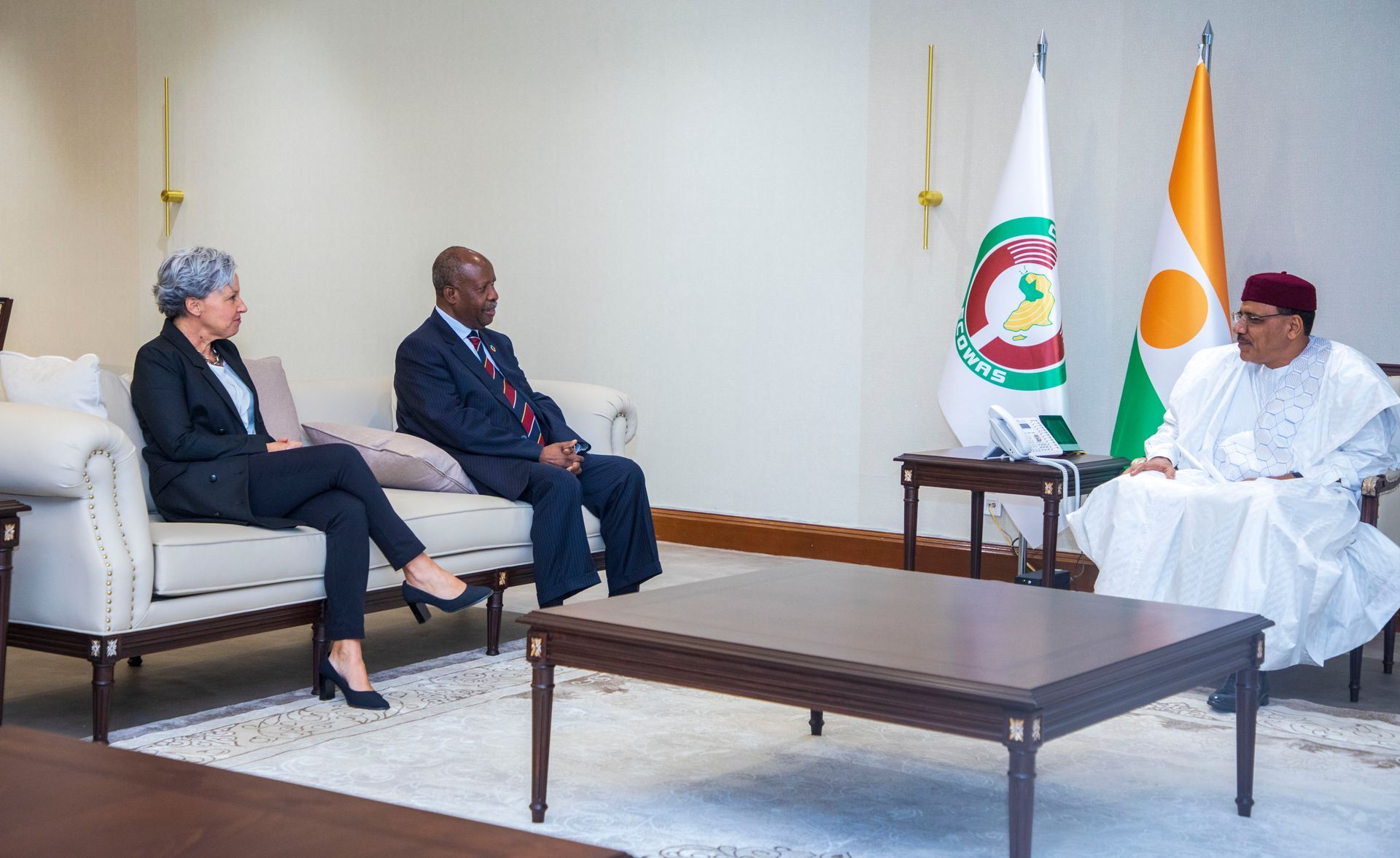
Le Chef de l’État, Mohamed Bazoum, a reçu, ce lundi 26 juin 2023 à son cabinet, le nouveau Représentant Spécial des Nations Unies pour l’Afrique de l’Ouest et le Sahel, M. Leonardo Santos Simâo, en visite dans les pays de la région. L’objet de cette audience pour Leonardo Santos est de prendre contact avec le Président nigérien, en sa qualité de nouveau représentant Spécial des Nations Unies pour l’Afrique de l’Ouest et le Sahel. « J’ai entrepris cette visite de prise de contact afin d’avoir une opportunité pour échanger sur la question sécuritaire et les problèmes et défis de la région », a indiqué le Diplomate Onusien à sa sortie d’audience. Selon M. Leonardo Santos, « le Président a aussi partagé avec moi sa vision et des informations sur la région ». « J'ai réitéré la disponibilité des Nations Unies à travailler avec le Niger, mais aussi avec la région, afin de recher cher les voies de surmonter les difficultés de parcours », a conclu M. Santos. Notons que l’audience s’est déroulée en Présence de la coordinatrice du système des Nations Unies au Niger et le Directeur de Cabinet Adjoint en second du Président de la République. Source: ANP
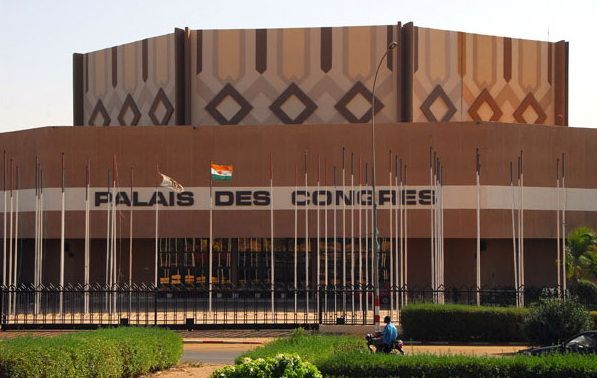
Aéroport, centre de conférences, hôtels : Niamey se dote de nouveaux équipements pour accueillir les conférences internationales et les voyageurs d'affaires. Dans l’ombre du sacre viennois au sein du palmarès ICCA, et alors que chacun guettait cet atlas du MICE post-Covid, l’information est passée relativement inaperçue. Elle est pourtant révélatrice de la montée en puissance d’une destination ambitieuse, une nouvelle venue qui compte bien se faire une place au soleil des grands événements internationaux. Car le Niger et sa capitale Niamey ont fait leur apparition pour la première fois dans le palmarès international. Et les autorités peuvent déjà se satisfaire d’un classement régional (7e) d’autant plus honorable que le Niger n’a intégré le réseau ICCA qu’au deuxième semestre 2021. Devançant au passage des destinations comme Nairobi, Durban ou Tunis. Une première consécration pour un pays qui, dix ans plus tôt, aurait difficilement pu imaginer pareille reconnaissance. Tout commence en 2015. Niamey postule alors à l’accueil de la conférence des chefs d’Etat et de gouvernement de l’Union Africaine 2019. Un événement majeur, qui pouvait à l’époque sembler disproportionné au regard des infrastructures de la capitale nigérienne. Ce défi constituera le moteur d’un plan d’aménagement XXL, qui débouchera en l’espace de quelques mois sur des inaugurations particulièrement stratégiques. A commencer par l’ouverture à l’été 2019 d’une nouvelle porte d’entrée, l’aéroport international Diori Hamani, couplée à une nouvelle voie express facilitant l’accès depuis et vers le centre-ville de la capitale. Autre nouveauté, et non des moindres : le Centre de Conférences Mahatma Gandhi. Au programme : une salle plénière de 2100 places, une salle banquet polyvalente (800 places), une autre “huis clos” (350 places), une salle de presse (100 places), auxquelles s’ajoutent des salons présidentiels et ministériels. Le nouveau spot MICE vient compléter les capacités du Palais des congrès déjà existant, et entièrement rénové. L’infrastructure s’est donc offert une cure de jouvence à la veille de son quarantième anniversaire, et propose notamment une grande salle de conférence d’un millier de places, avec six cabines de traduction, quatre salles de commission, ou une salle huis clos de 425 places. En parallèle, la scène hôtelière de la capitale est également entrée dans une nouvelle dimension. Le groupe Radisson a ainsi confirmé son rôle prépondérant sur le continent africain en inaugurant au printemps 2019 une nouvelle adresse de 189 clés. Le Radisson Blu Hotel & Conference Center Niamey ajoute également 2800 m² d’espaces meetings & events avec huit salles de réunion et deux salles de conférence. Autres nouveaux venus sur une scène hôtelière qui manquait cruellement d’adresses haut de gamme : l’hôtel Bravia (197 chambres, 7 salles de réunion), ou encore le Noom (141 chambres, 6 suites, 4 salles de réunion et un espace polyvalent de 470 m²). Une nouvelle salle multifonctions de 5000 places Autant d’inaugurations concentrées sur quelques semaines – quelques mois tout au plus -, et qui changent incontestablement la dimension de la capitale du Niger. Résultat : la conférence des chefs d’Etat et de gouvernement de l’Union Africaine est un succès, et Niamey semble alors équipée pour accueillir des événements régionaux. Mais loin de marquer l’aboutissement des ambitions nigériennes, cette année 2019 ouvrira un nouveau chapitre prometteur. Car après avoir remporté cette course contre la montre, le pays se lance dans un marathon pour s’installer durablement dans la hiérarchie du MICE. Et se dote d’une organisation étatique dédiée à cet objectif, pour mettre en œuvre une stratégie multi-sectorielle ambitieuse et raisonnée : l’Agence nationale de l’Économie des Conférences (ANEC). Le timing de la crise sanitaire aurait pu tuer dans l’œuf cette ambition naissante. Il n’en fut rien. Pendant cette parenthèse, le Niger sera donc admis en tant que membre ICCA. Et l’ANEC prépare l’avenir avec – encore – des projets en masse. Les autorités viennent ainsi de valider la construction d’une nouvelle salle multifonctions d’une capacité de 5000 places. Parallèlement, les projets hôteliers continuent de fleurir. Et le lobbying des membres de l’ANEC, en Europe comme en Chine, porte ses fruits. A l’occasion d’une “Table Ronde sur le commerce et l’investissement au Niger” organisée à Londres, le Président du Niger se félicitait ainsi : « Nous sentons un réel intérêt des investisseurs britanniques pour notre pays. Et vous avez raison : le Niger offre de réelles opportunités ». Et le Chef de l’Etat de lister quelques-uns des atouts du pays : “une immense réserve en eaux souterraines, rendant arables 20 millions d’hectares pour des projets agro-industriels ; un grand cheptel, qui reste à industrialiser ; de l’or et du gaz, faiblement exploités à ce jour ; de l’uranium en grande quantité qui, quoi qu’on dise, reste l’avenir énergétique du monde ; du pétrole, insuffisamment exploré ; du ciment, des phosphates, etc.” Les ressources nigériennes vont en outre profiter d’un autre projet majeur : l’inauguration d’un oléoduc jusqu’au port de Sèmè Kraké, au Bénin. “A partir de la fin de cette année, notre pipeline va se mettre en route, prévoit le Directeur Général de l’Agence Nationale de l’Économie des Conférences du Niger, Mohamed Saidil Moctar. La volonté est donc politique, les investissements privés. Et les retombées se chiffraient à la fin 2022 à plus de 44 millions d’euros (29 milliards de Francs CFA), grâce à l’organisation de 113 événements réunissant quelque 28 000 participants d’après l’ANEC. “Le Niger est en train d’attirer de grands événements de niveau international sur des sujets très importants”, confirmait Hans Fraeters, Représentant de la Banque mondiale au Niger, à l’occasion de la première édition de la Nuit de l’ANEC, en mai dernier. Il y a donc fort à parier que le prochain palmarès ICCA sera guetté impatiemment du côté de Niamey. Source: https://www.voyages-d-affaires.com/niamey-mice-niger-transforme-evenementiel-20230621.html

American multi-billionaire Bill Gates who was in China last weekend has arrived in Africa. He travels to West African countries with Aliko Dangote, the continent’s richest man. The two giants were in Niger on Monday. The Head of State of Niger Mohamed Bazoum received on June 19, 2023, the co-president of the Bill and Melinda Gates Foundation, Bill Gates and the Nigerian Aliko Dangote, as President of the eponymous Foundation. In Niamey, these two personalities discussed with President Mohamed Bazoum the partnership between their foundations and the government of Niger in the field of health and development. “Given the long-standing partnership between Niger and the Bill and Melinda Gates Foundation on issues of vaccination and polio elimination, the meeting with the Head of State focused in particular on the major issues relating to health and development, indicated Mr. Gates at their exit from the hearing”, read a press release from the Nigerien Presidency. Gates reiterated the support of the two foundations to the West African country in its efforts to meet health challenges. “We are very happy with this commitment from the Head of State and the partnership between Niger and our two Foundations because vaccination can save thousands of lives,” he said. “We also discussed the actions that we are going to take in the context of the elimination of poliomyelitis and other issues to strengthen the health system in Niger,” he added. According to the Niger government, the country has been a leader in polio eradication and immunization efforts in recent years. Bill Gates is also expected in Nigeria this week. AfrikPage

Le Ministre d’Etat, des Affaires Etrangères et de la Coopération Hassoumi Massoudou a présidé ce jeudi 14 juin 2023, au cabinet du ministère des Affaires Etrangères, la cérémonie de signature d’accord de siège de la Représentation Résidente de la Communauté Economique des Etats de l’Afrique de l’Ouest (CEDEAO). Cet accord permettra aux deux parties, de formaliser les conditions de fonctionnement de cet instrument qui est nécessaire en tant que pont permanent entre le Niger et les institutions de la CEDEAO. Les différents textes adoptés par les Chefs d’Etat et de gouvernement, en particulier le traité révisé, les protocoles sur les immunités, qui ont posé les jalons et balisé les modalités de fonctionnement et de relations entre les structures mises en place par l’organisation et les Etats membres. Après signature et échange des documents entre le Ministre des Affaires Etrangères Hassoumi Massoudou et le Président de la Commission de la CEDEAO Dr Omar Alieu Touray, celui-ci s’est félicité de la qualité « de la collaboration que les différents services entretiennent avec notre représentation qui est également la vôtre puisque vous êtes les propriétaires de la CEDEAO ». La Représentation de la CEDEAO NIGER a été conçue comme instrument de promotion d’une coopération forte et dynamique entre les Etats membres, les institutions et les structures de de la CEDEAO. Dans ce sens, « elle doit aider à faciliter la communication, s’assurer d’une réponse rapide et efficace aux préoccupations de l’Etat membre, aider à s’assurer d’une bonne compréhension et prise en compte des réalités du pays dans les programmes et projets et assurer une veille d’information au profit des différents acteurs tant nationaux que régionaux » a indiqué le Président de la Commission. Pour sa part, le ministre d’Etat Hassoumi Massoudou qu’au Niger, ‘’le bureau de la Représentation Résidente de la CEDEAO NIGER a ouvert ses portes en avril 2020, dans un contexte particulier marqué par la pandémie de la Covid 19’’. La signature de cet Accord de siège entre le Niger et la CEDEAO « va désormais formaliser et régulariser l’ét ablissement de la Représentation résidente de notre organisation communautaire au Niger’’. Aussi, fort de l’intérêt que le gouvernement attache aux différentes actions au profit des populations et dans le cadre de la mise en œuvre de la vision 2050 de la CEDEAO, « j’ai très bon espoir que cet accord vous offre un cadre juridique adéquat pour un meilleur fonctionnement de votre bureau en parfaite conformité avec les textes nationaux et communautaires » ajoute le ministre des Affaires Etrangères. FONTE: LinkedIn CEDEAO Niger
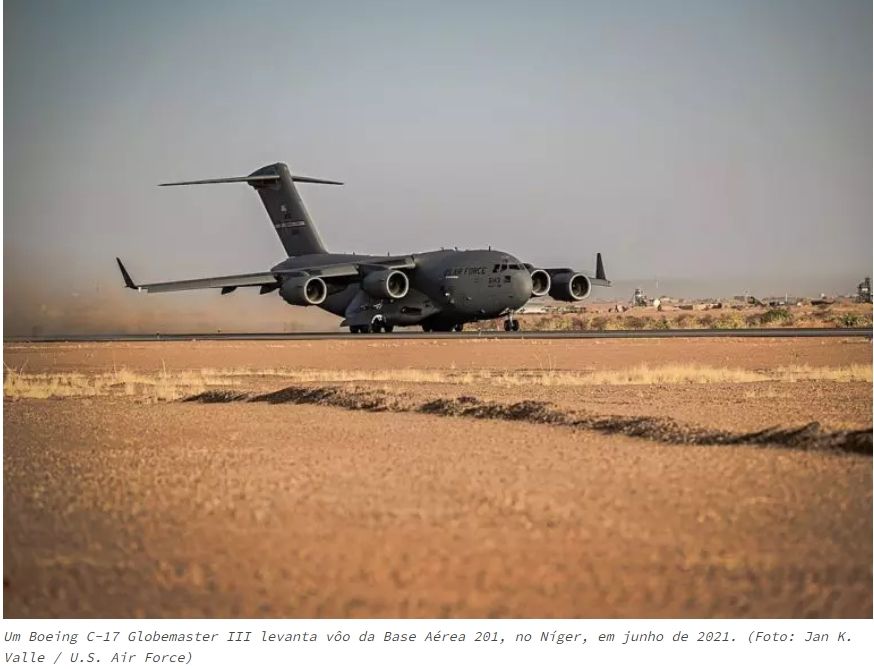
No dia 16 de março de 2023, o Secretário de Estado dos EUA, Antony Blinken, anunciou, durante sua visita ao Níger, que o governo dos EUA proverá 150 milhões de dólares em ajuda à região africana do Sahel. Esse dinheiro, disse Blinken, “ajudará a fornecer apoio vital a refugiados, requerentes de asilo e outras pessoas afetadas por conflitos e insegurança alimentar na região.” No dia seguinte, a UNICEF lançou um comunicado com informações de um relatório que as Nações Unidas haviam lançado naquele mês que declarava que 10 milhões de crianças em países do Sahel central, como Burkina Faso, Mali e Níger, precisam de assistência humanitária. A UNICEF pediu 473,8 milhões de dólares para apoiar seus esforços para fornecer a essas crianças os requisitos básicos. De acordo com o Índice de Desenvolvimento Humano de 2021, o Níger, apesar de contar com grandes reservas de urânio, é um dos países mais pobres do mundo (189º de 191 países); os lucros do urânio há muito foram escoados para as corporações multinacionais francesas e outras multinacionais ocidentais. O dinheiro da ajuda dos EUA não irá para as Nações Unidas, mas será desembolsado por meio de suas próprias agências, como o Escritório de Assistência Humanitária da Agência de Desenvolvimento Internacional dos EUA (USAID). Ao nordeste da capital do Níger, Niamei, próxima da cidade de Agadez, está a Base Aérea 201, uma das maiores bases de drones do mundo, que abriga vários aviões militares não-tripulados MQ-9 Reapers. Durante uma coletiva de imprensa com Blinken, o ministro de Relações Exteriores do Níger, Hassoumi Massoudou, reafirmou a “cooperação militar” de seu país com os EUA, que inclui os Estados Unidos “equipando […] nossas forças armadas, nosso Exército, nossa Força Aérea e nossa Inteligência”. Nem Blinken nem Massoudou falaram sobre a Base Aérea 201, a partir da qual os EUA monitoram a região do Sahel, treinam as forças armadas do Níger e dão apoio aéreo para operações terrestres estadunidenses na região (tudo isso tornado claro durante a visita da Sargento Chefe da Força Aérea dos EUA, JoAnne S. Bass, à base, no final de dezembro de 2021). Os EUA gastarão 280 milhões de dólares nessa base – montante duas vezes maior do que o apoio humanitário prometido por Blinken –, incluindo 30 milhões de dólares por ano para manter as operações na Base Aérea 201. Blinken é o primeiro Secretário de Estado dos EUA a visitar o Níger , um país que seu próprio departamento acusou de ter “problemas significativos de direitos humanos” como “assassinatos ilegais ou arbitrários, incluindo execuções extrajudiciais por ou em nome do governo” e tortura. Quando um repórter questionou Blinken durante a coletiva de imprensa sobre o que os EUA fariam para “trazer a democracia” para Burkina Faso e Mali, ele respondeu dizendo que os EUA estão monitorando os “retrocessos democráticos, os golpes militares, que até agora não levaram a uma renovação do processo democrático constitucional nesses países”. Os governos militares em Burkina Faso e no Mali expulsaram os militares franceses de seus territórios e indicaram que não aceitarão nenhuma nova intervenção militar ocidental. Um alto-oficial no Níger me disse que a hesitação de Blinken em falar diretamente sobre Burkina Faso e o Mali pode ter a ver com a angústia sobre a vacilante democracia no Níger. O presidente do Níger, Mohamed Bazoum, enfrenta sérias críticas no país relacionadas à corrupção e à violência. Em abril de 2022, o presidente Bazoum escreveu em seu Twitter que 30 de seus alto-oficiais haviam sido presos por “peculato ou apropriação indébita” e estariam na prisão “por muito tempo.” Esta foi uma declaração perfeitamente clara, mas que obscureceu a corrupção mais profunda dentro da própria administração de Bazoum – incluindo a detenção de seu ministro das Comunicações, Mahamadou Zada, por acusações de corrupção –, que foi revelada por meio de uma auditoria dos gastos do país em 2021, e que revelou milhões de dólares de fundos estatais desaparecidos. Ainda mais, um terço do dinheiro gasto pelo Níger para comprar 1 bilhão de dólares em armas de empresas armamentistas entre 2011 e 2019 foram apropriados por funcionários do governo, de acordo com um relatório do Organized Crime and Corruption Reporting Project. Em dezembro de 2022, durante a Cúpula de Líderes EUA-África, o presidente Bazoum se uniu ao presidente do Benim, Patrice Talon, para se tornar parte do projeto estadunidense conhecido como Millennium Challenge Corporation (Corporação Desafio do Milênio, em tradução livre – MCC). O governo dos EUA prometeu 504 milhões de dólares para facilitar o transporte entre o Benim e o Níger, com o fim de estimular o aumento do comércio entre os dois países vizinhos. O MCC, desenvolvido em 2004, no contexto da guerra dos EUA contra o Iraque, foi expandido em um instrumento usado pelo governo dos EUA para fazer frente à Iniciativa Cinturão e Rota (BRI) liderada pelos chineses. Alto-oficiais no Níger, que pediram anonimato, e diversos estudos realizados por autoridades independentes, indicam que esse dinheiro do MCC tem sido usado para melhorar as terras agrícolas africanas, e que a corporação tem trabalhado com fundações dos EUA, como a Aliança para a Revolução Verde na África (financiada pelas fundações Bill e Melinda Gates e Rockefeller), para transferir esses recursos para multinacionais agrícolas. As doações da MCC, disseram os altos oficiais, são usadas para “lavar” a terra do Níger para interesses corporativos estrangeiros e para “subordinar” a liderança política do Níger aos interesses do governo dos EUA.

The Niger Economic and Social Development Plan (PDES) 2022-2026 aims for a proportion of at least 15% solar in the energy mix and access to electricity for more than 1/3 of Nigeriens by 2026 It is in this sense that major initiatives are underway to reduce the country’s energy dependence vis-à-vis the outside world and further secure its electrical energy supplies. These projects being carried out throughout the national territory, we note, encompass all segments, namely Production, Transport and Distribution through the extensions and reinforcements of the electricity networks of cities already electrified as well as rural electrification. These include the construction of a 30MW solar power plant in Gorou Banda (Niamey), the inauguration of which is scheduled for April 2023, the ongoing construction of the 25 MW solar-diesel hybrid power plant in Agadez, the The inauguration will take place before the end of 2023. We can also mention the work in progress for the hybridization of power plants located in large isolated localities of the country, namely Bilma, Dirkou, Iferouāne, Ingall, Timia, Fachi, Tillia, Telemcess, Ayawane, Banibangou, Dingazi, Tarbiat. The Iférouane unit was inaugurated on 1 is last December. Hybridization, we note, is a great operation that allows the localities concerned to switch from a 12-hour electricity supply per day to a 24-hour service. It is combined everywhere with extensions of the distribution network to connect new subscribers and ensure a coverage rate of at least 75% of the locality. The construction of solar power plants of 20MW in Maradi, 10MW in Dosso and 10MW hybrid in Diffa, whose financing has just been granted by the AfDB, as part of the RANAA project at a cost of 98 billion FCFA with 750,000 beneficiaries. The construction of the 330 kV Nigeria-Niger-Burkina-Benin interconnection line, the commissioning of which is expected in 2024, as well as the extensions of the networks in all the localities already electrified and the important Rural Electrification component are also among the current actions. It should also be noted that two power stations are already operational, namely the Goudel 89MW diesel power station in Niamey, which has since contributed to covering 30% of the capital’s electrical energy demand, and that of Zinder, with a power of 22MW. with a coverage rate of 125%, built by the Mauritanian company ISTITHMAR WEST AFRICA (IWA), with its Turkish partner WINENERJI. According to the communication manager of the Ministry of Energy and Renewable Energies, Tari Bako Nadia, efforts are being made to develop Niger’s energy production capacities. Also, she said, “we are in the process of involving the private sector in the approach to developing our national energy resources to develop independent production projects”. “This year we intend to entrust the construction and operation of the 50 MW solar power plant of Gorou Banda II (Niamey) to an independent producer, whose selection process is currently underway with the support of the World Bank through the “Scaling Solar” program, announced the communication manager. Source: https://time.news/niger-projects-80-electricity-access-rate-by-2035-ministry/
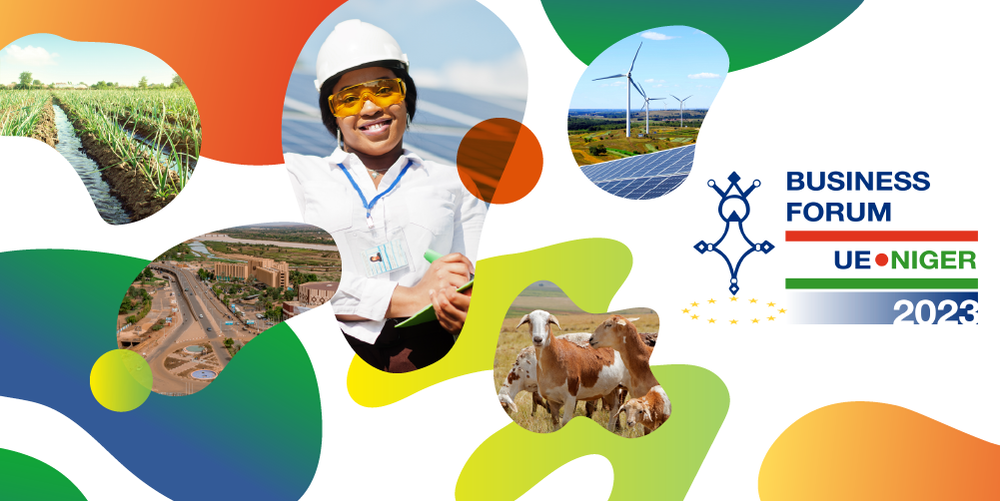
O primeiro "Fórum de Negócios UE-Níger" teve lugar em Niamey, no Mahatma Gandhi International Conference Center, nos dias 7 e 8 de fevereiro de 2023, um evento que teve a participação do Escritório LEGACIS Esta conferência foi considerada marcante e uma das maiores reuniões de negócios na história econômica do Níger, dedicada a investidores, banqueiros e funcionários que apoiam o crescimento e desenvolvimento econômico do Níger. Durante estes dois dias, as sessões foram transmitidas por videoconferência e um espaço de exposição junto à sala de reuniões permitiu a representação efetiva de empresas nigerianas, europeias e africanas, bem como representantes de doadores, estados membros da UE e diferentes departamentos-alvo do Governo do Níger. Dedicado a investidores nigerianos, europeus e africanos na sub-região, o EU-Niger Business Forum 2023 disponibilizou uma plataforma única para empresas, figuras governamentais e decisores. Através desta iniciativa foi possível o seguinte: Conhecer as oportunidades de investimento: Facilitar o compartilhamento de informações sobre o potencial de desenvolvimento e investimento no Níger em setores prioritários: energia, agronegócio, pecuária, artesanato e construção em particular; Realizar reuniões de negócios e com autoridades nacionais: Promover a criação de parcerias empresariais entre os setores privados do Níger e da UE no âmbito do investimento e da procura de parcerias. Para isso, um espaço mobiliado será dedicado a esses encontros B2B e B2G; Aproximar o Níger e a UE: Trabalhar para um diálogo construtivo para enriquecer o clima de negócios no Níger e facilitar o comércio entre o Níger e a União Europeia. O Secretário de Estado dos Negócios Estrangeiros e Cooperação de Portugal foi um dos convidados para participar no "Fórum de Negócios UE-Níger". No seu discurso, Francisco André manifestou total interesse em reforçar as relações institucionais e diplomáticas entre Portugal e o Níger e a disponibilidade para o apoio às parcerias económicas, comerciais, sociais e outros níveis que se possam estabelecer entre os dois países. Assista ao vídeo:
